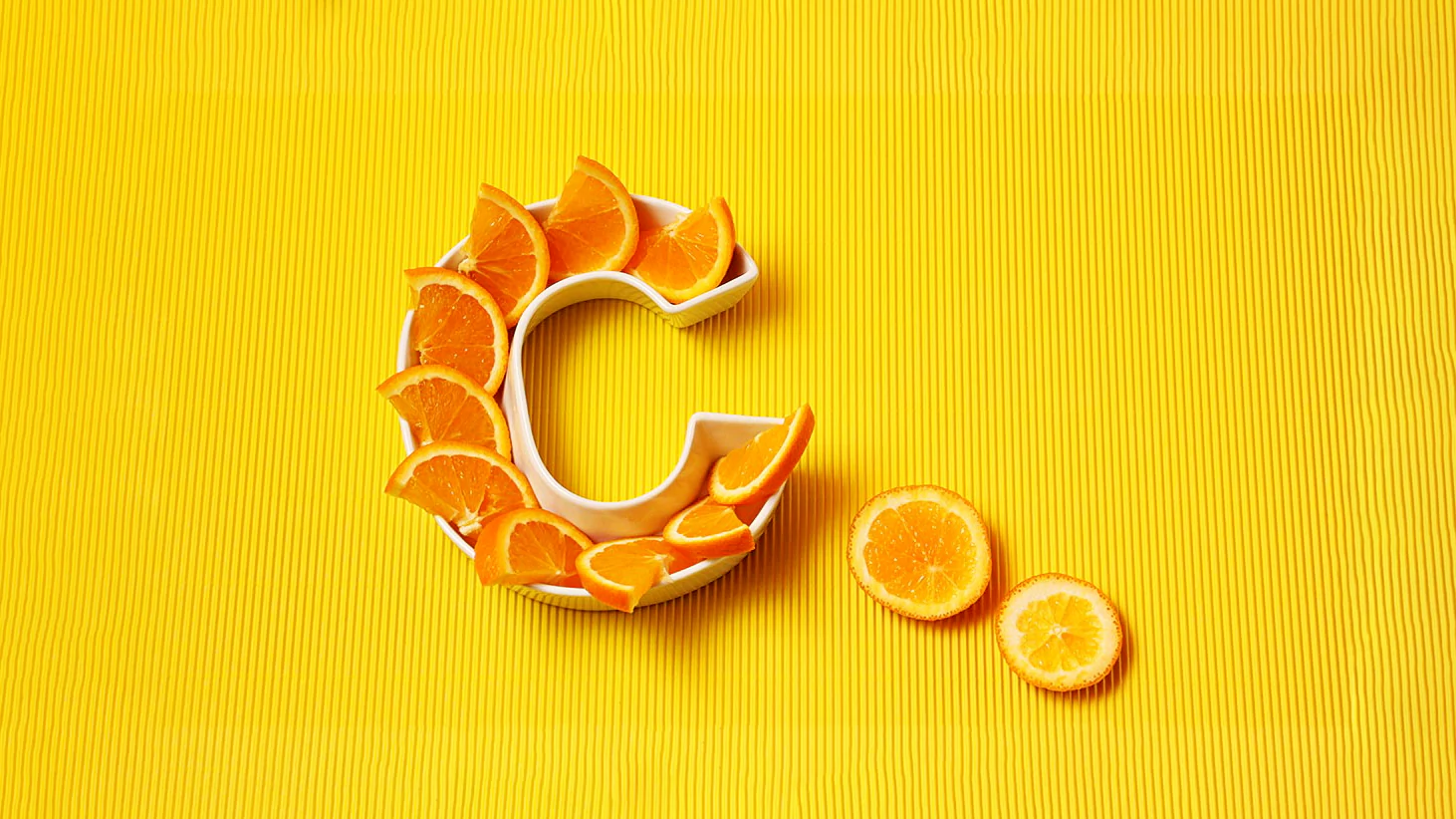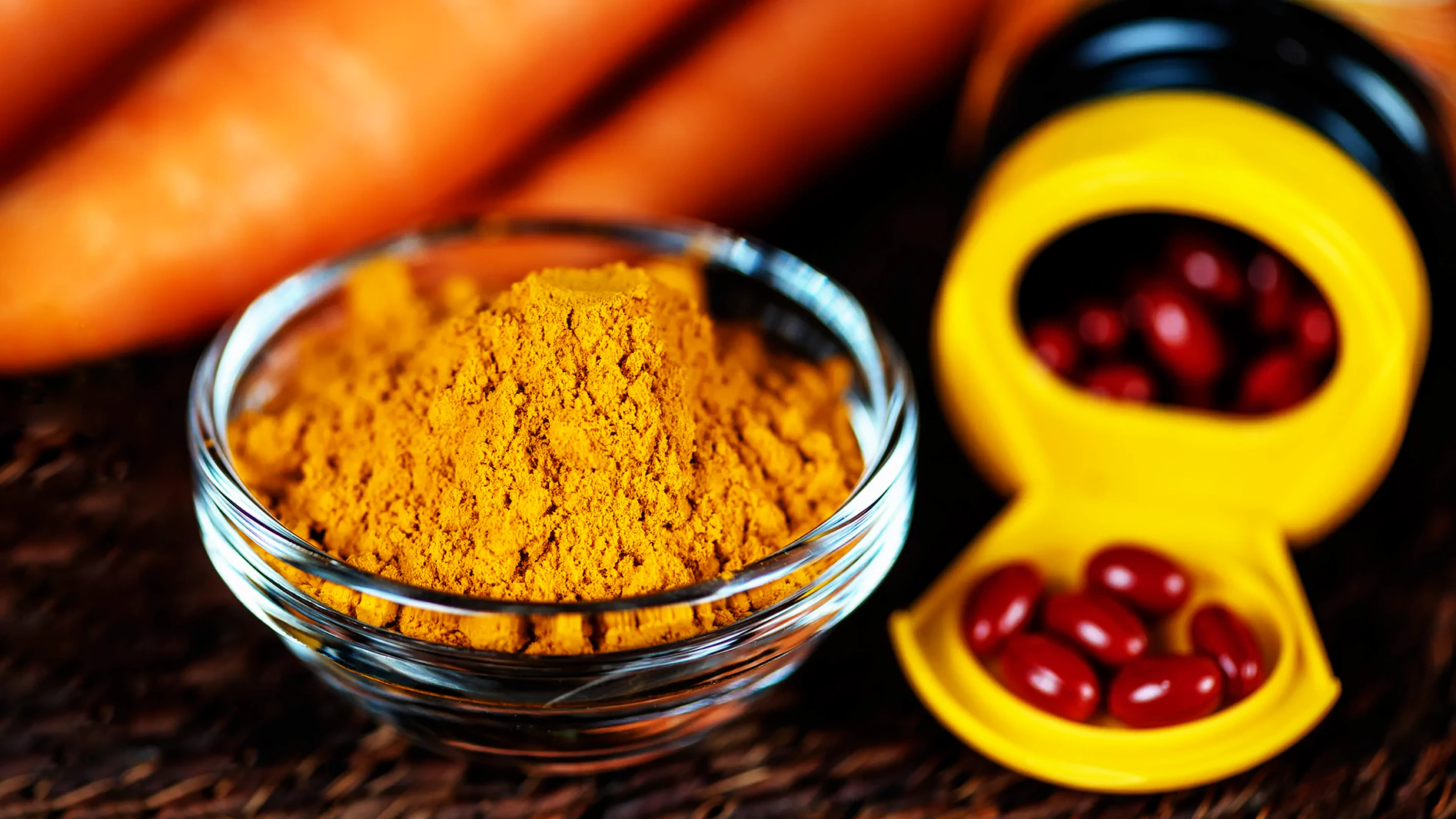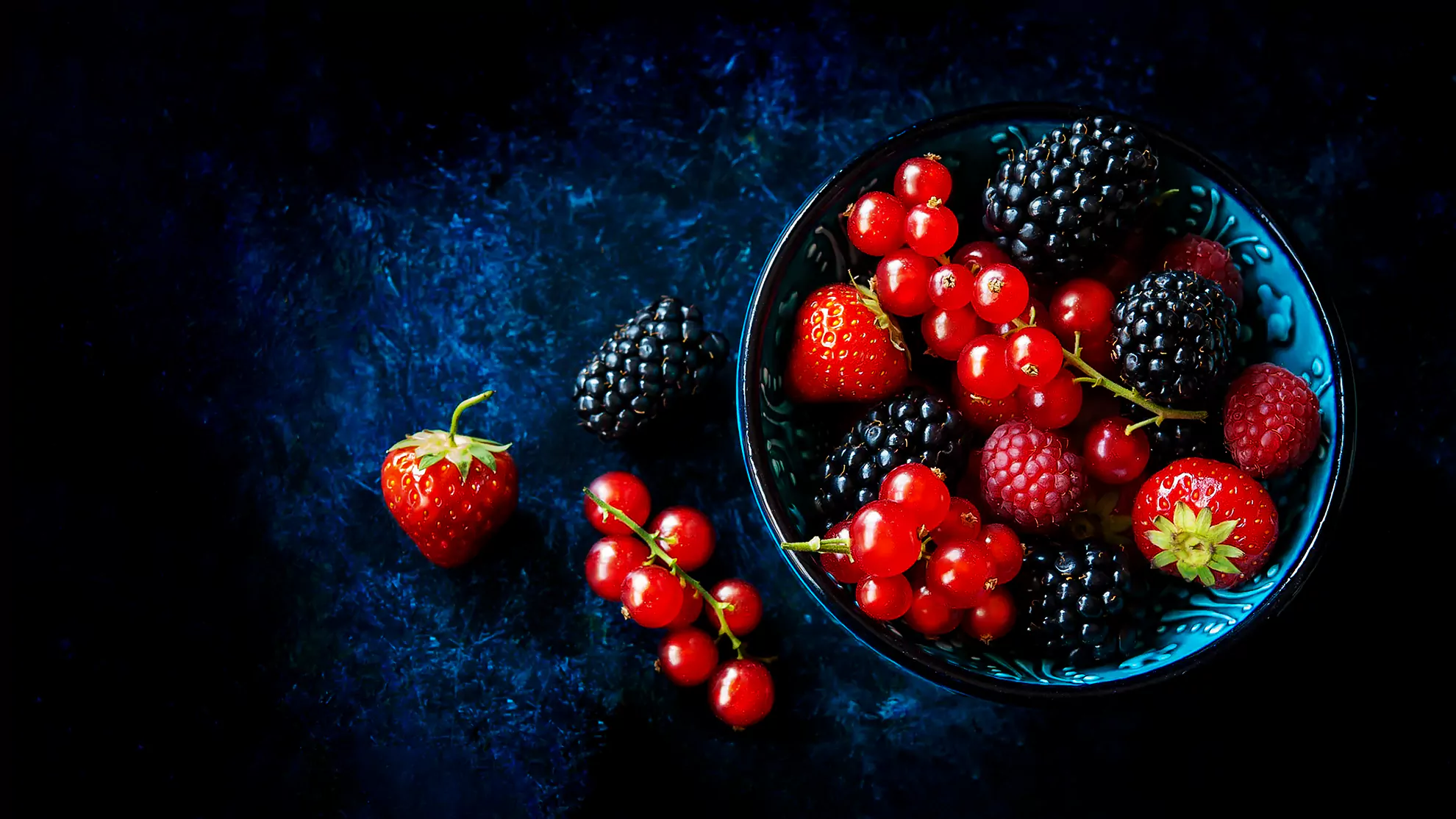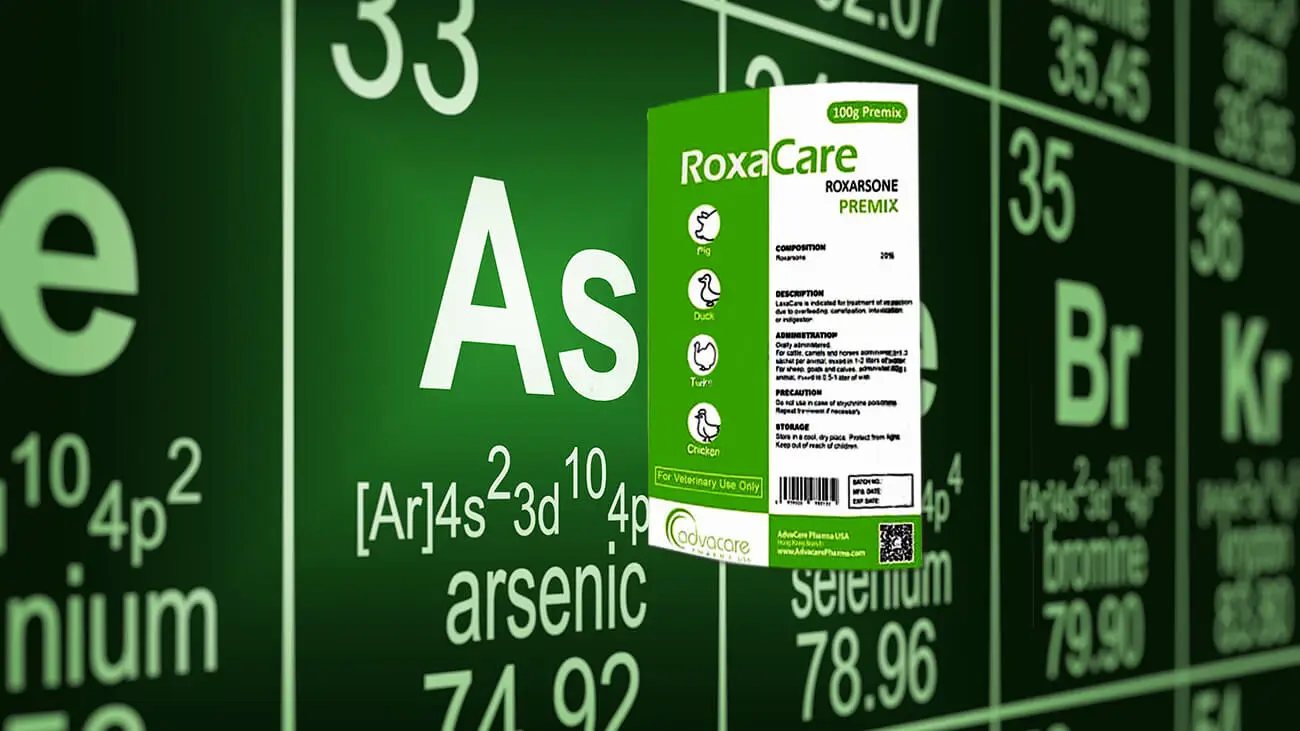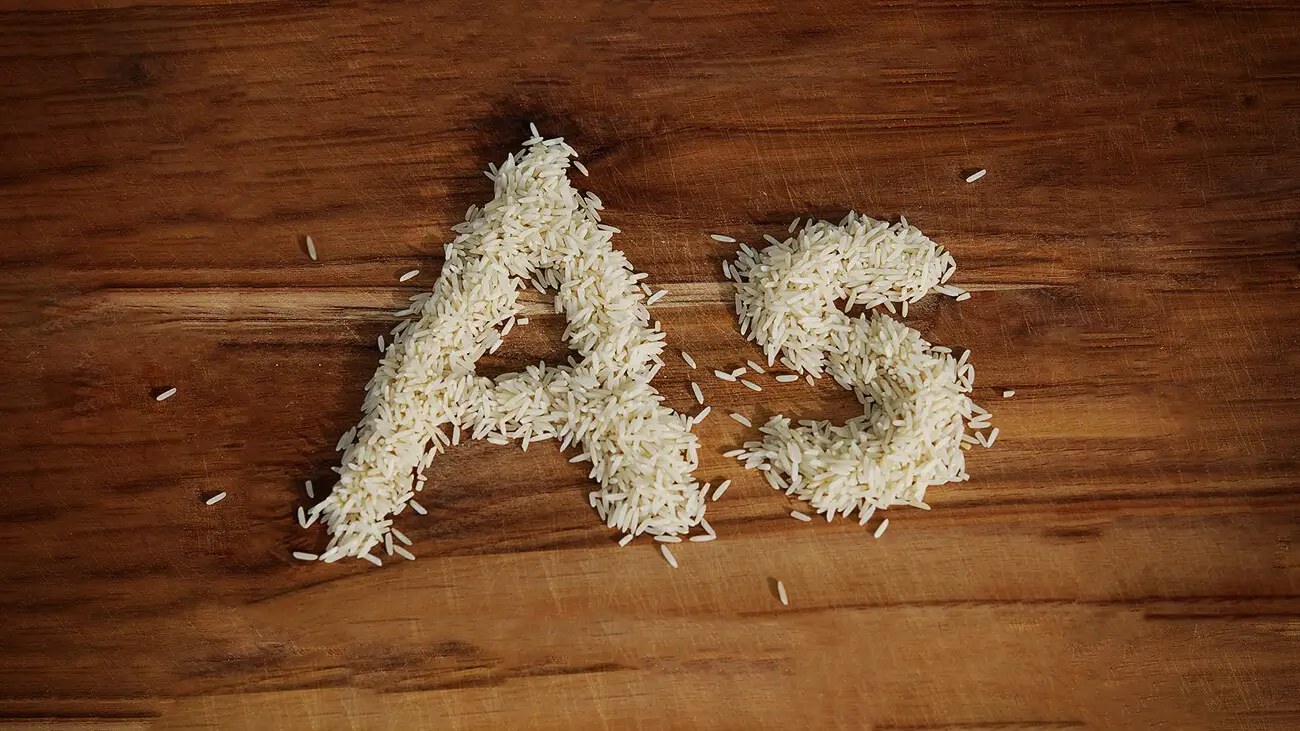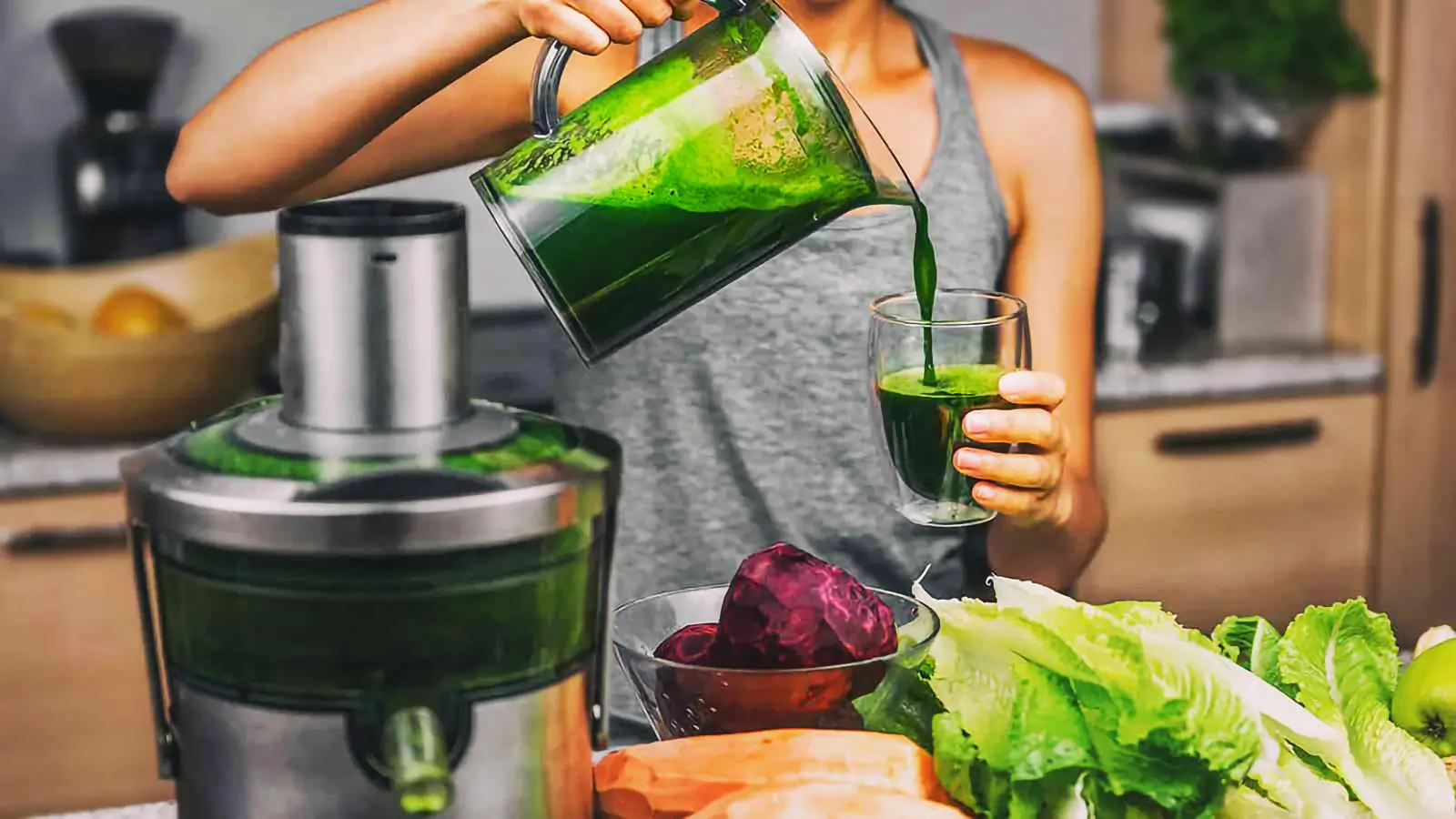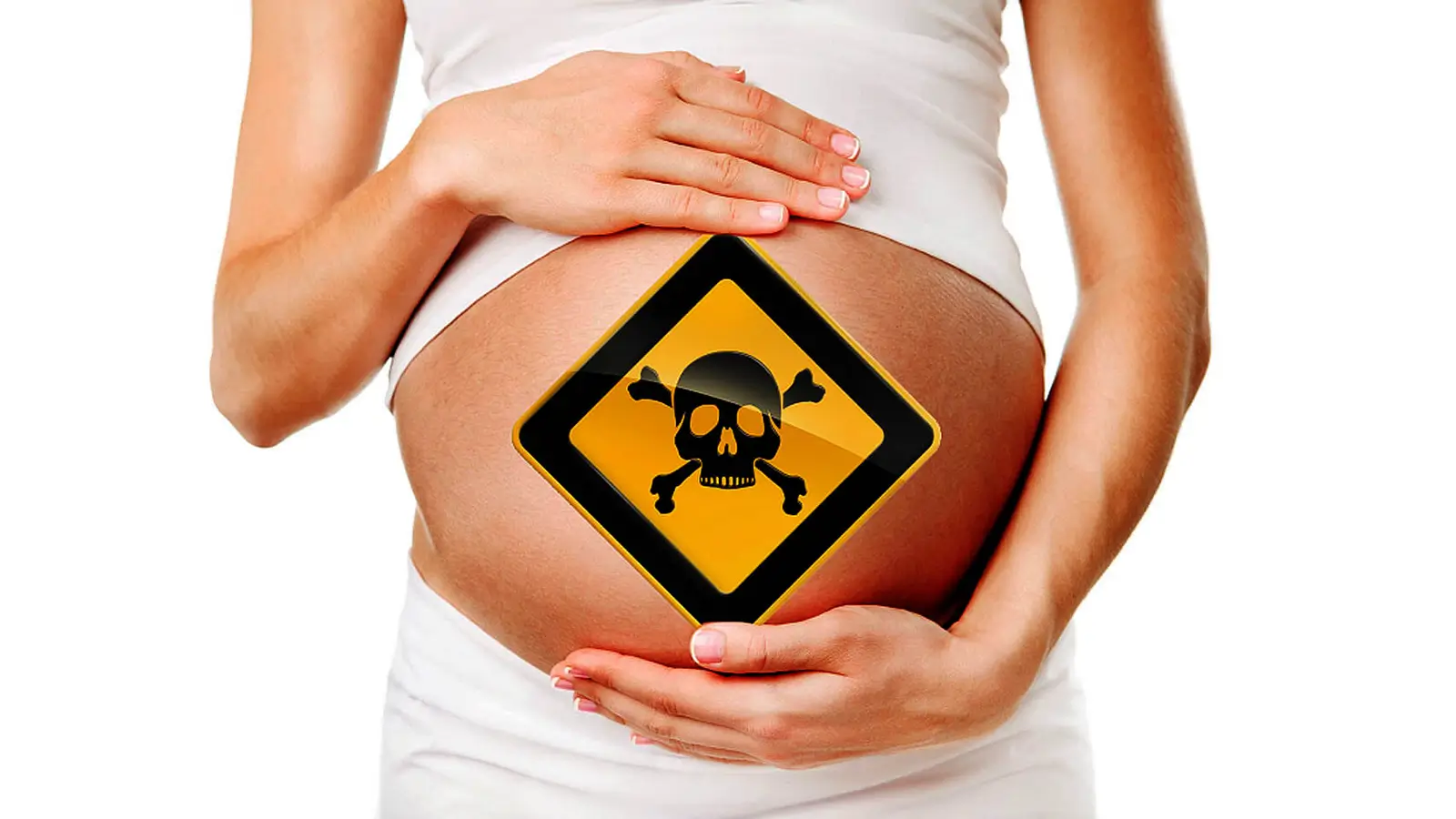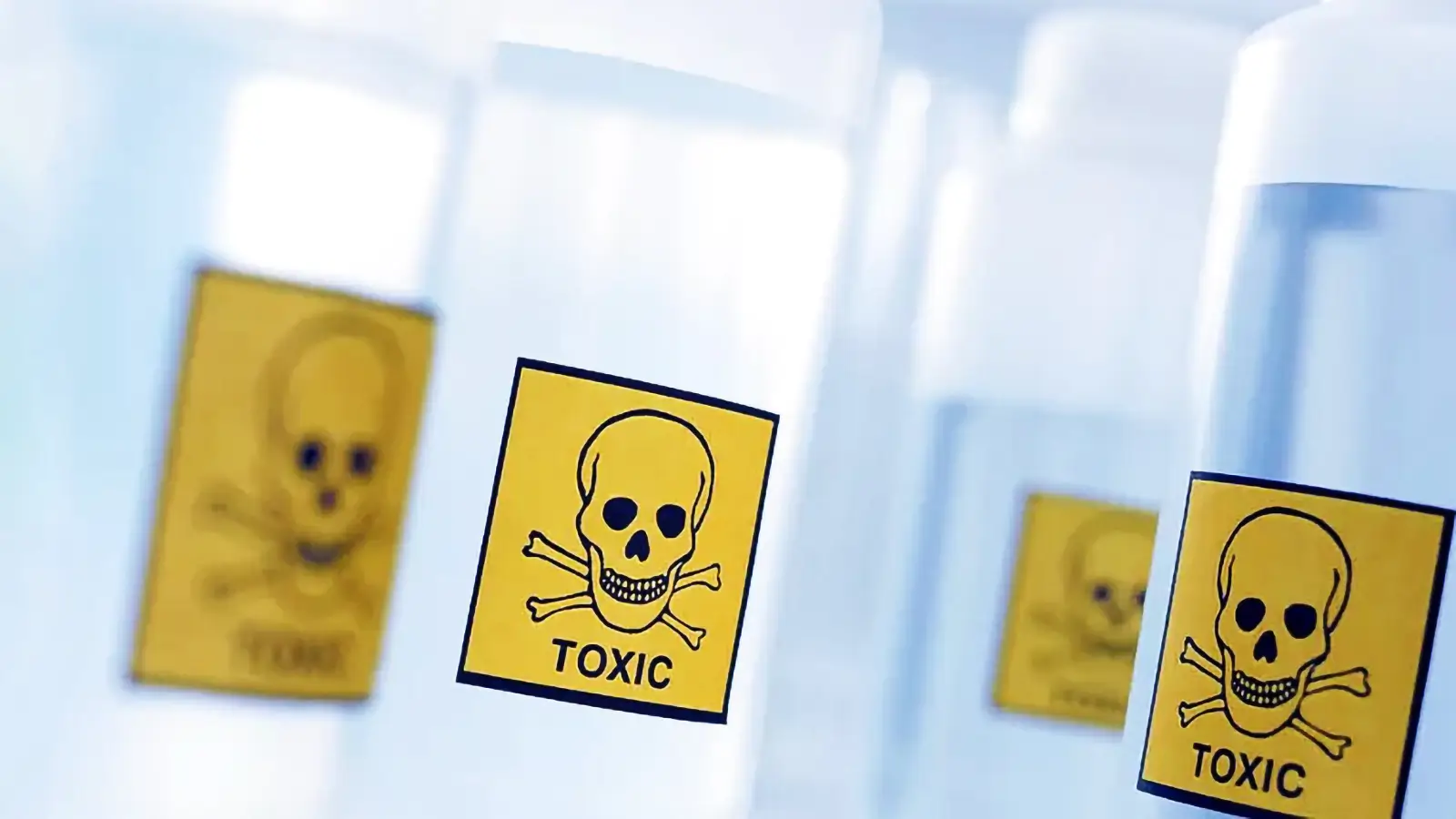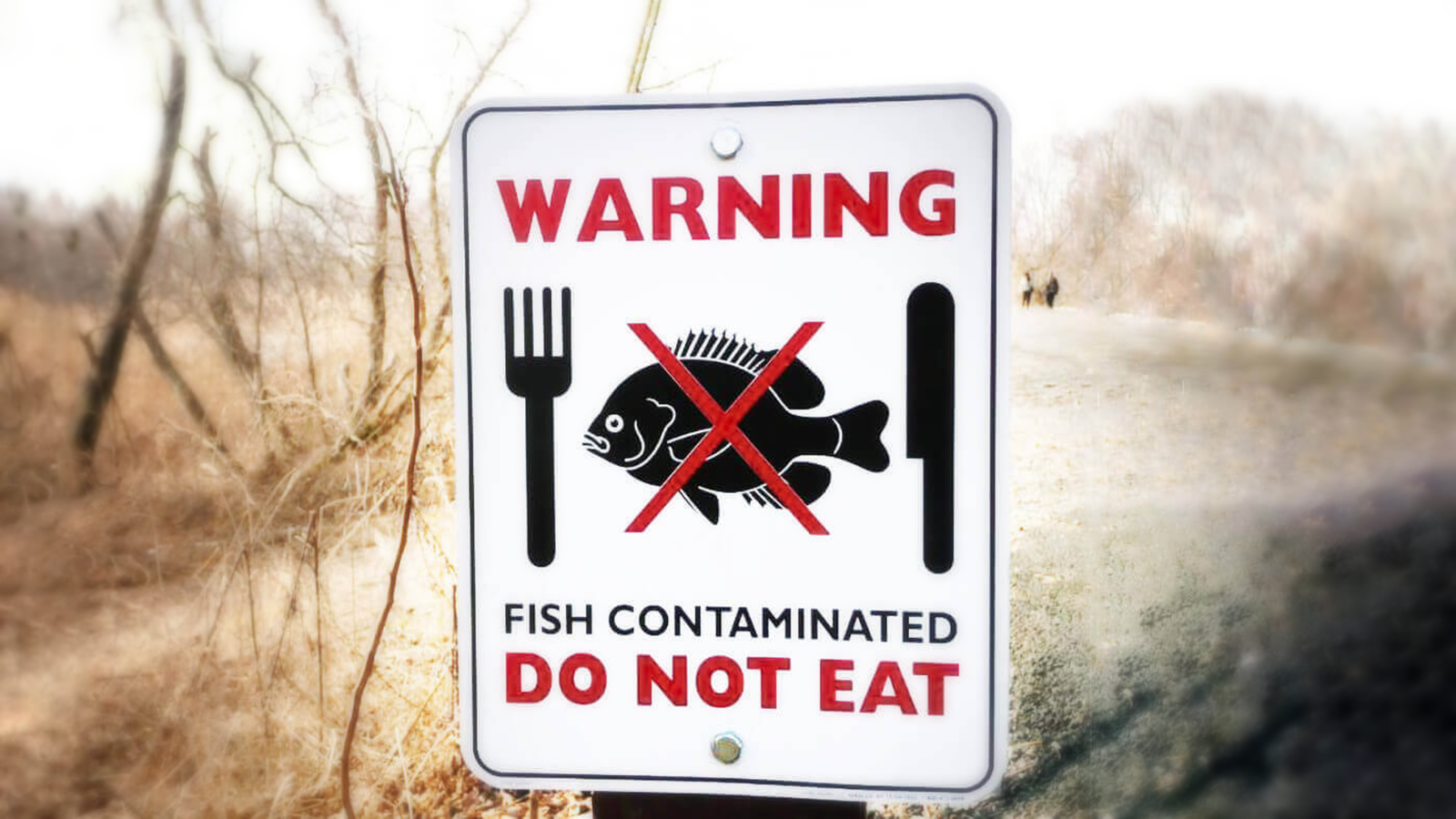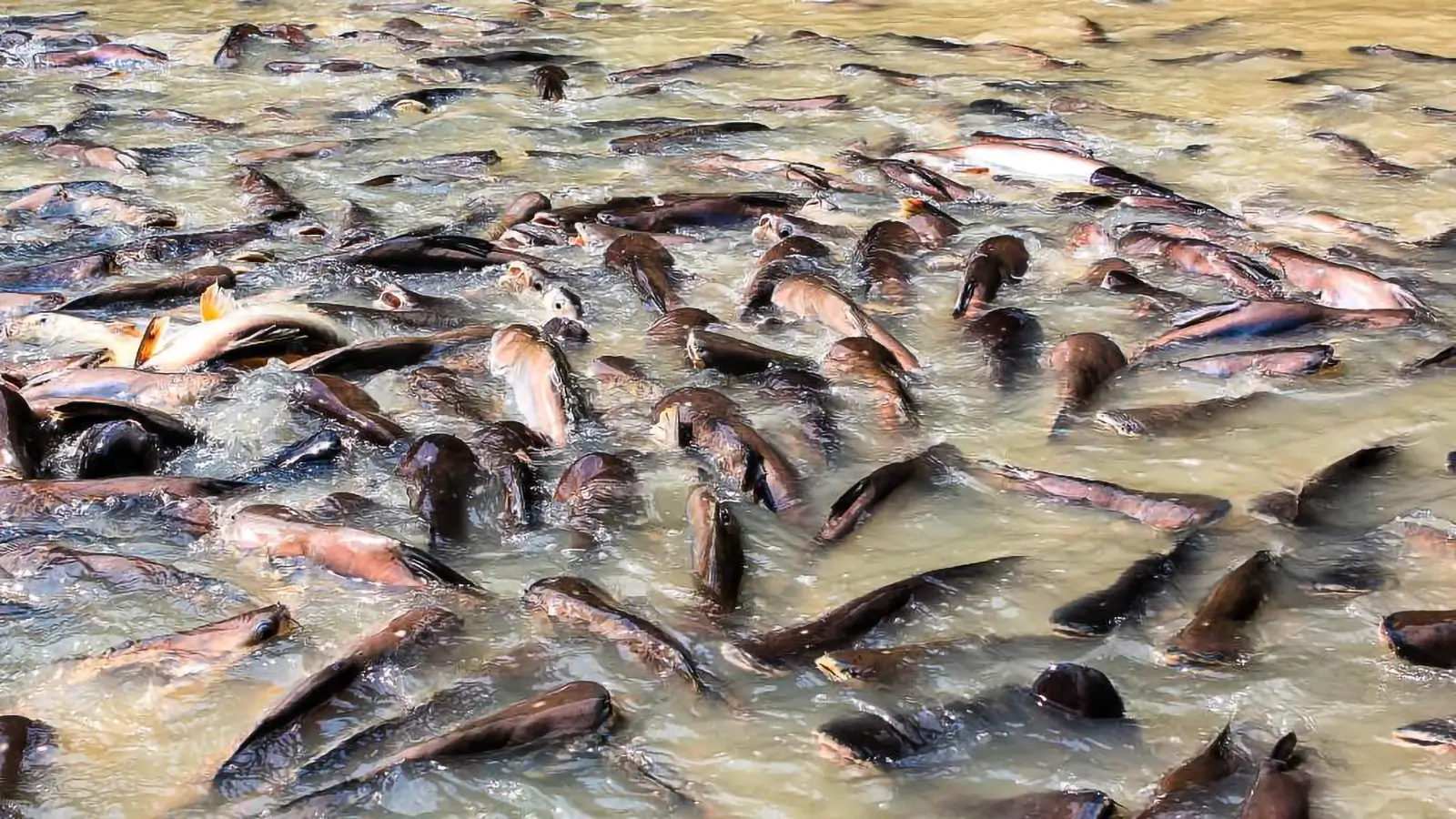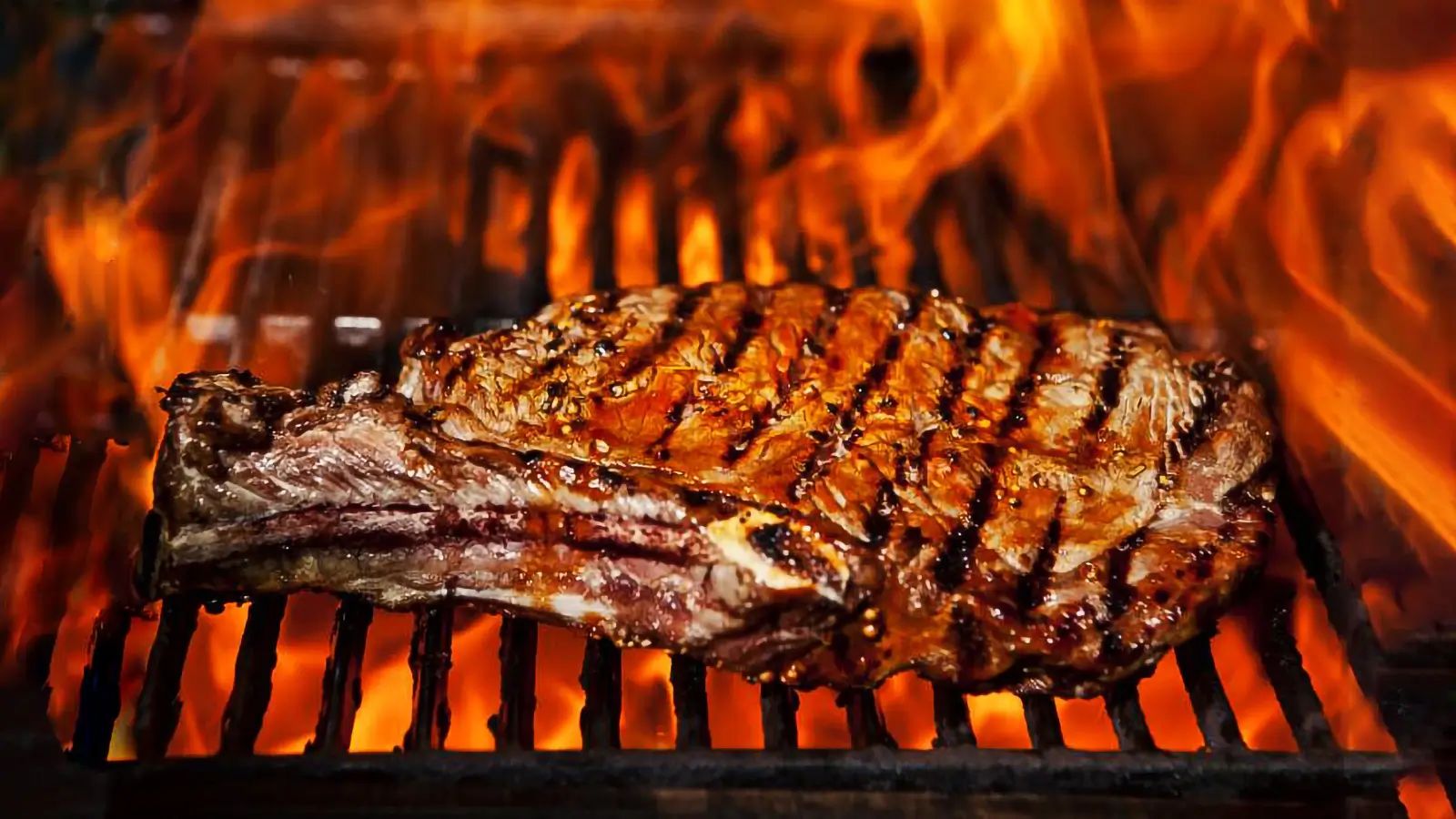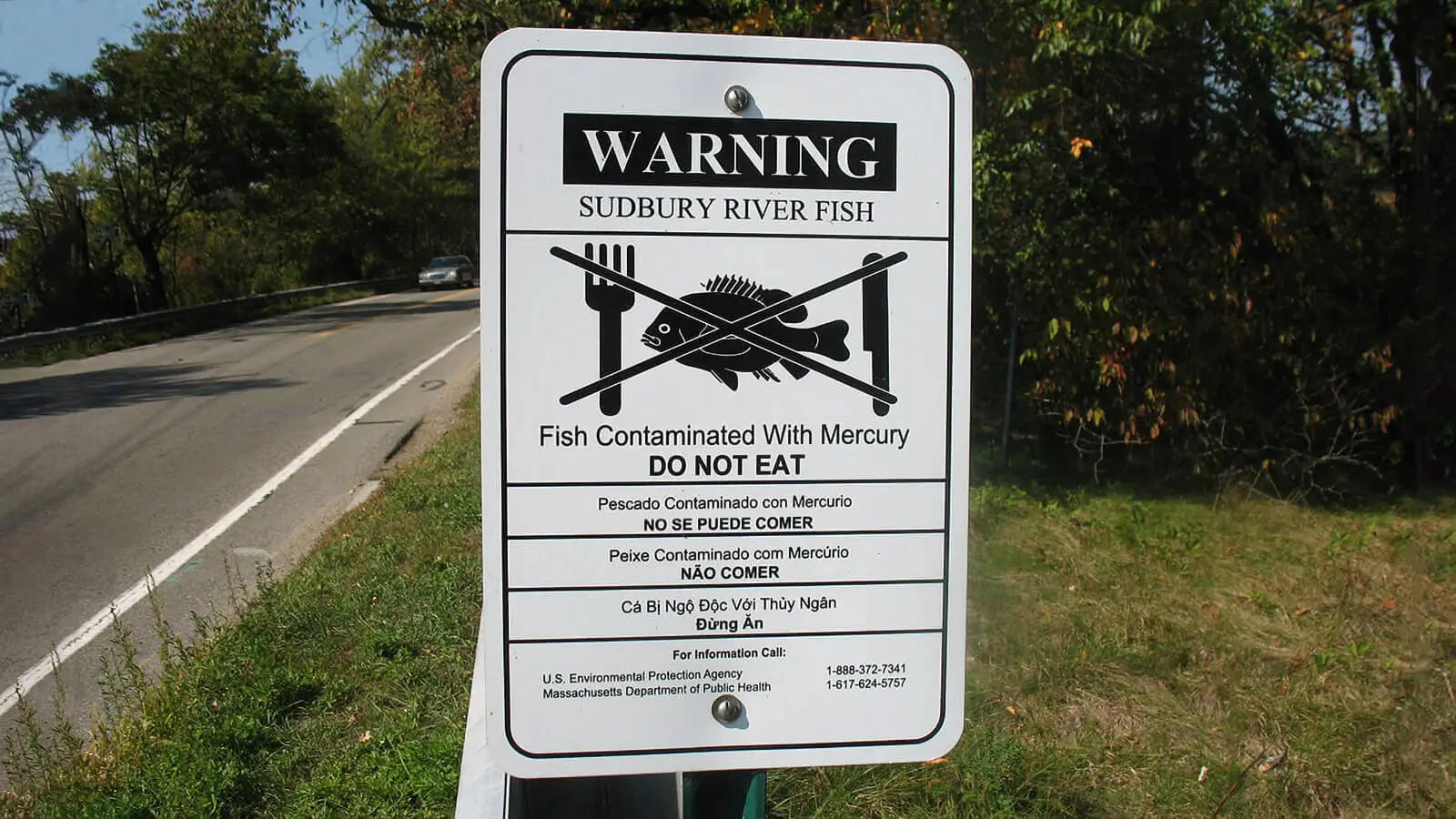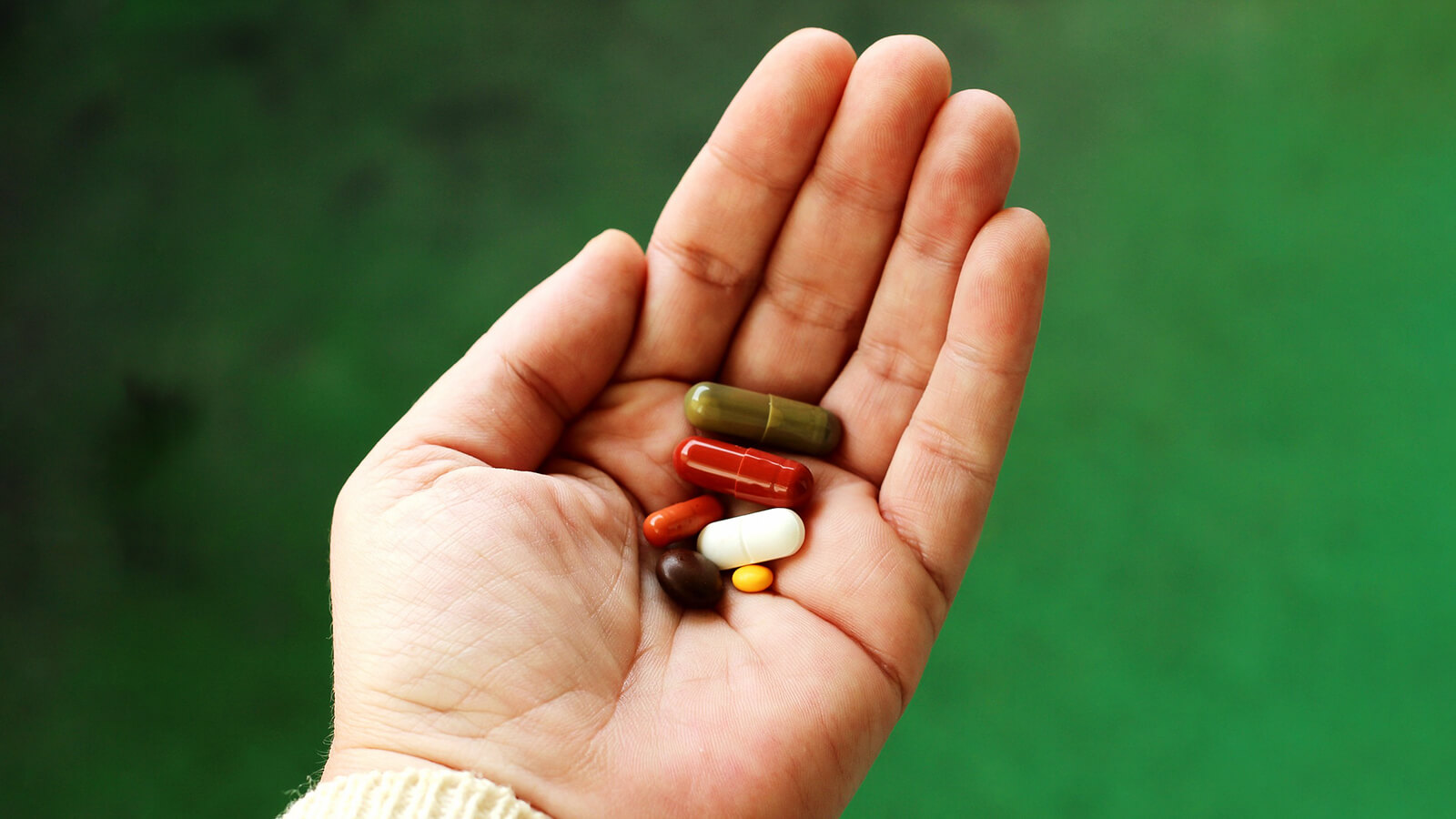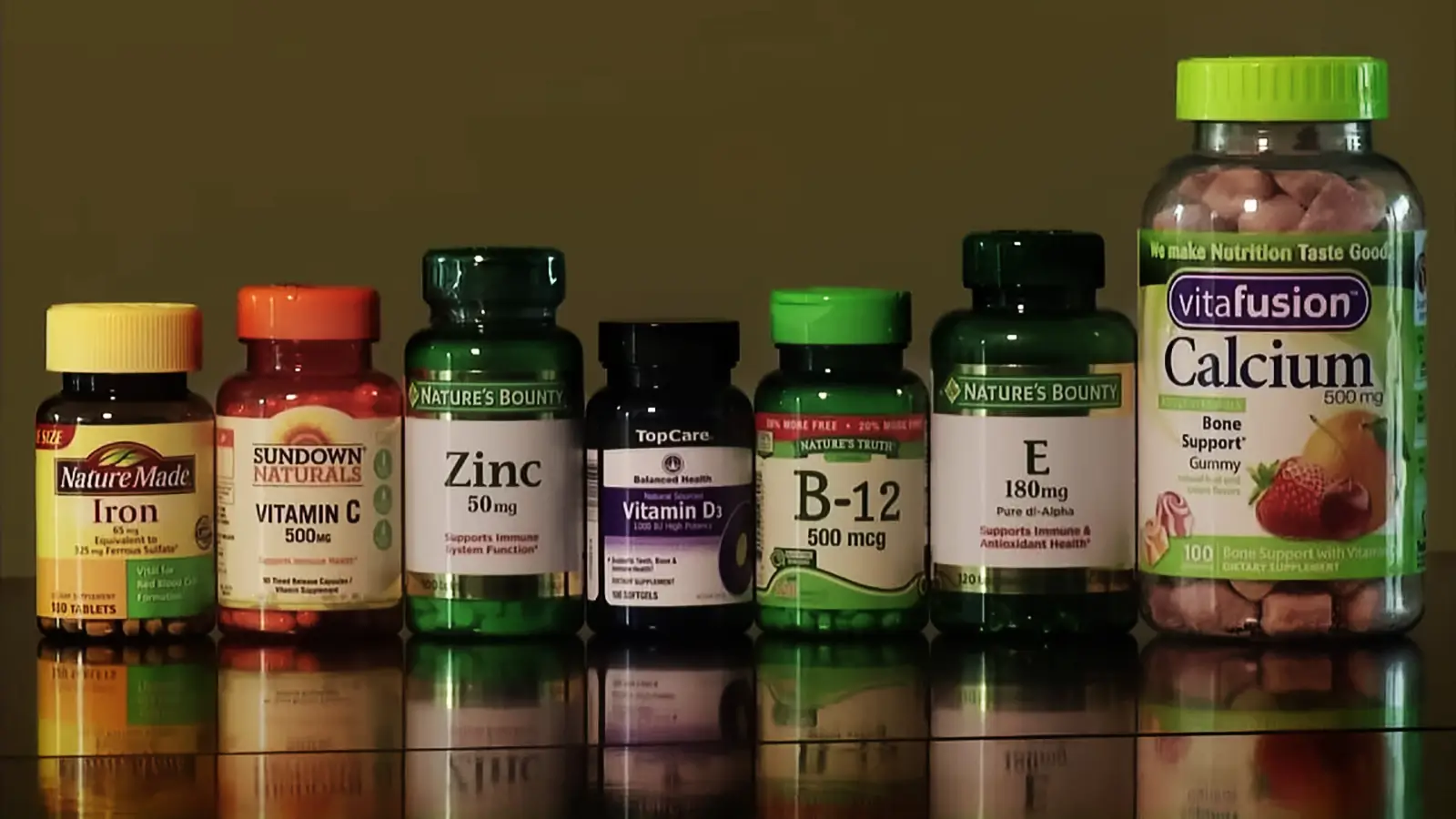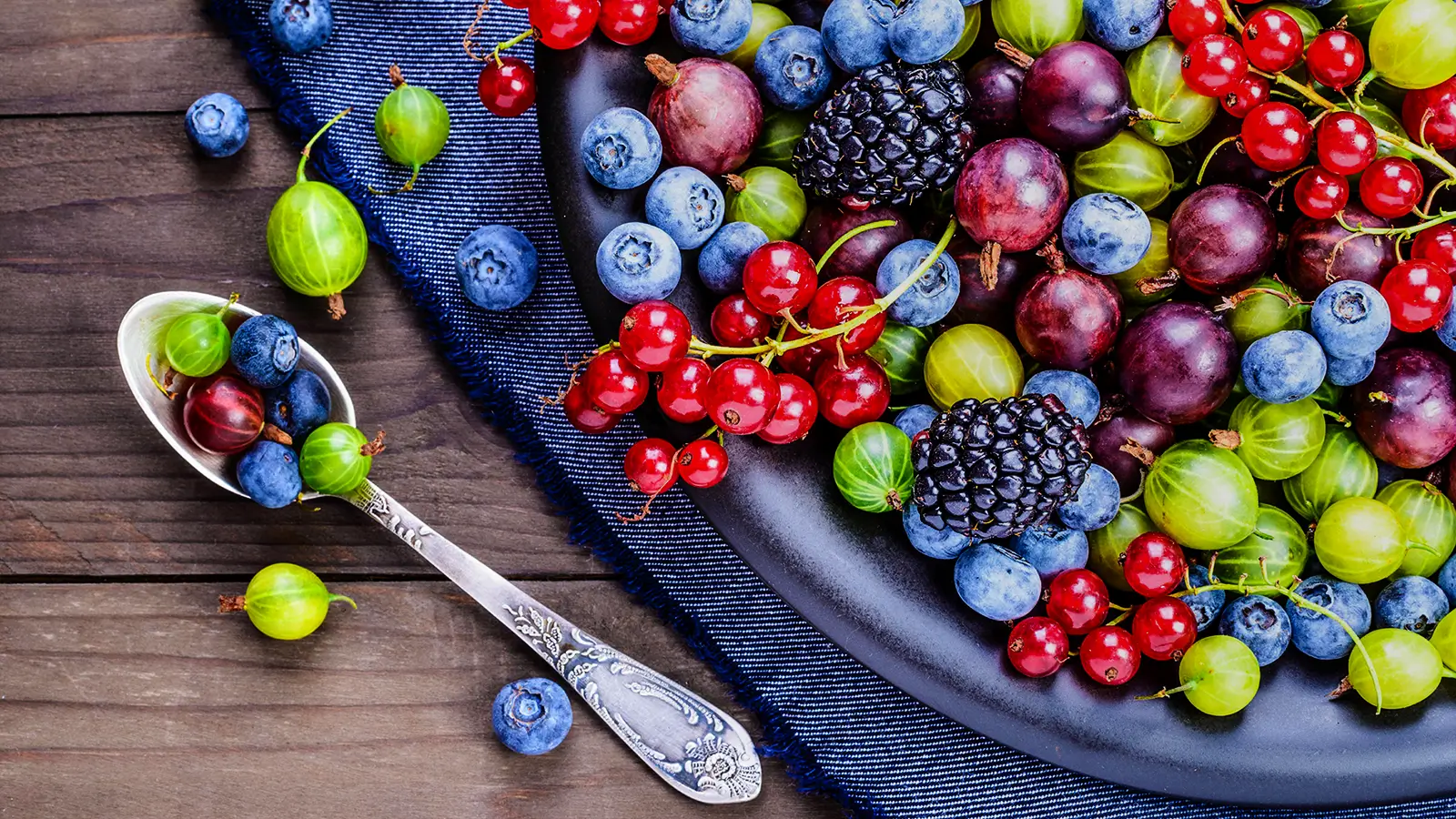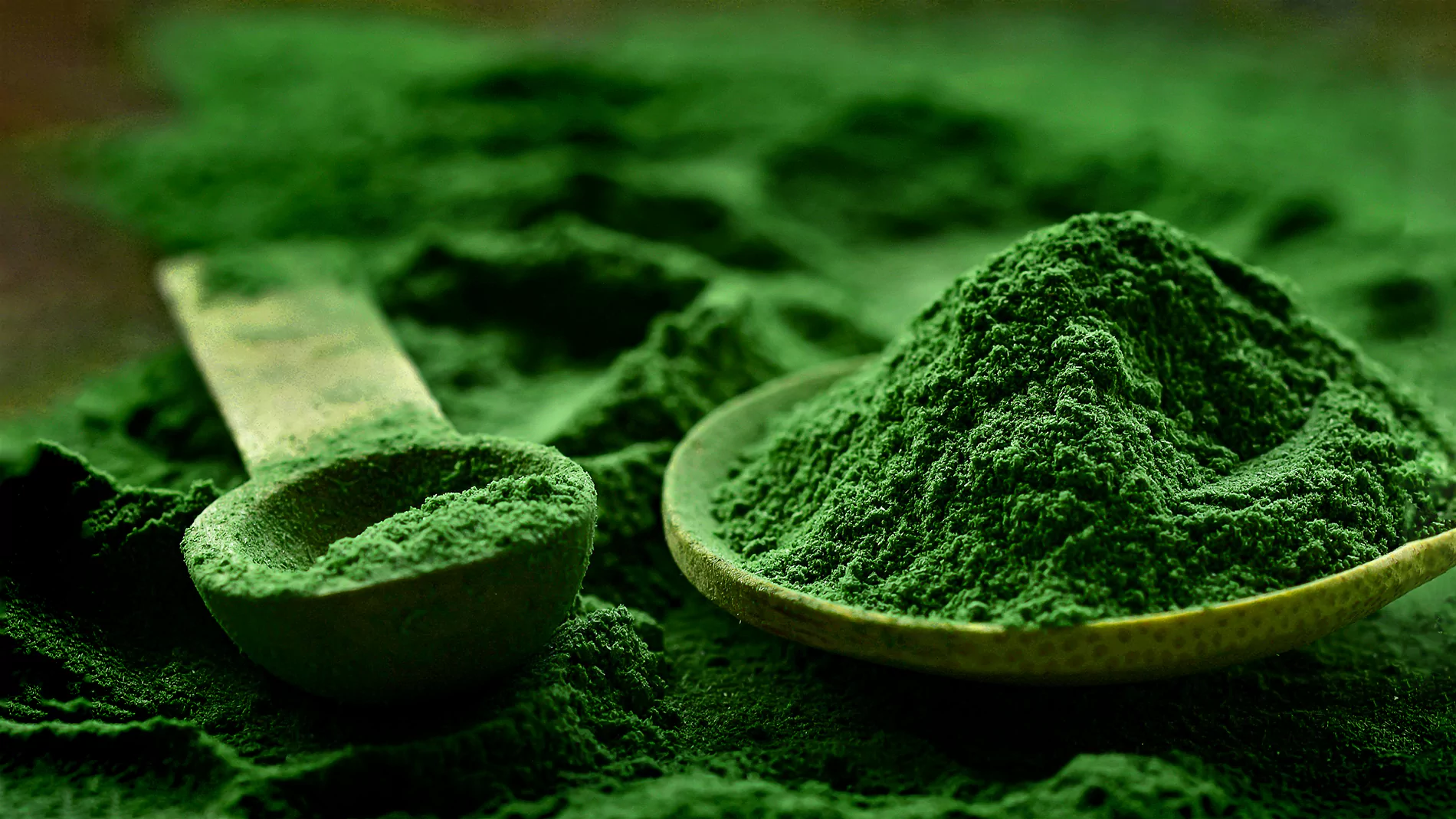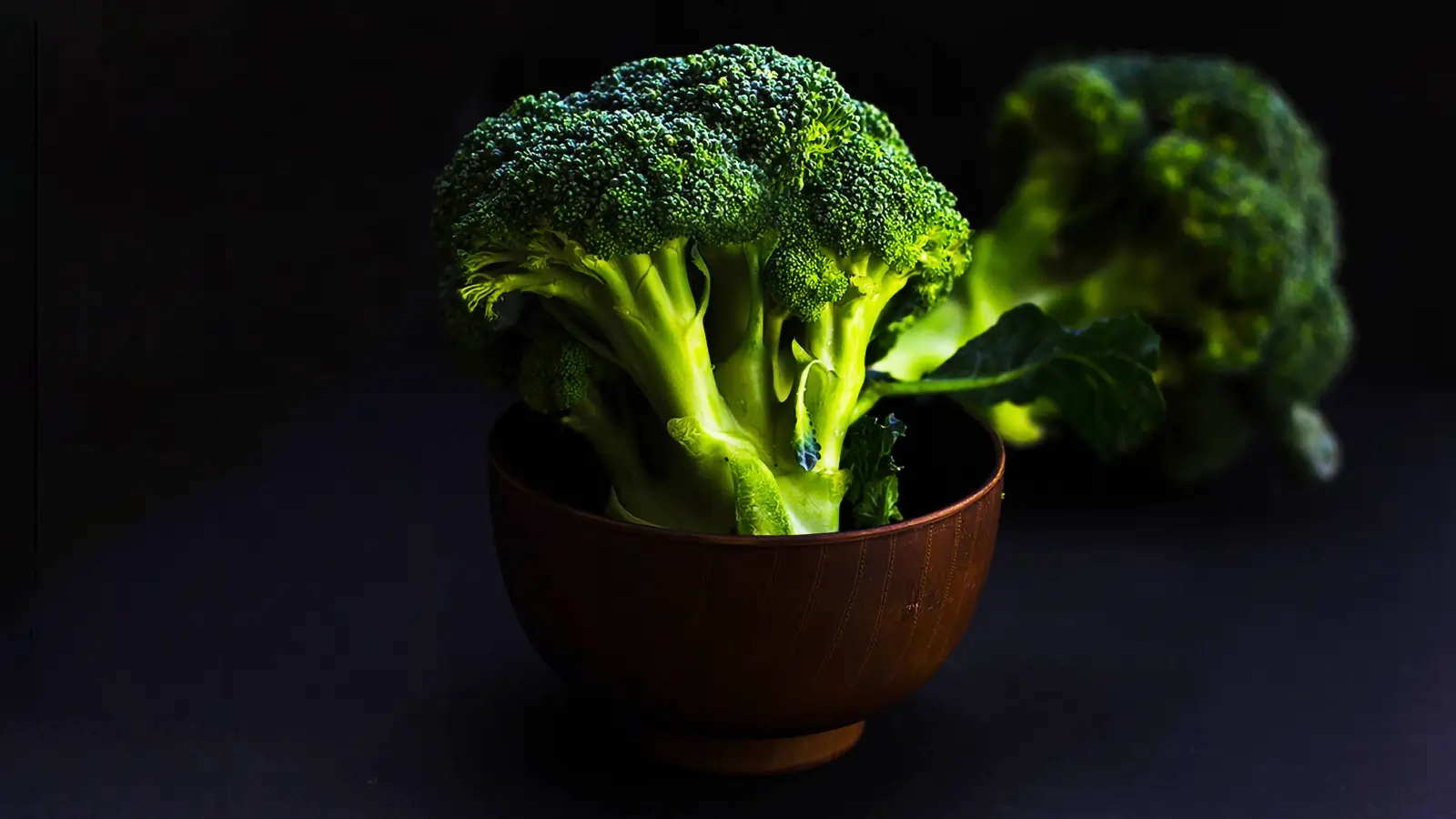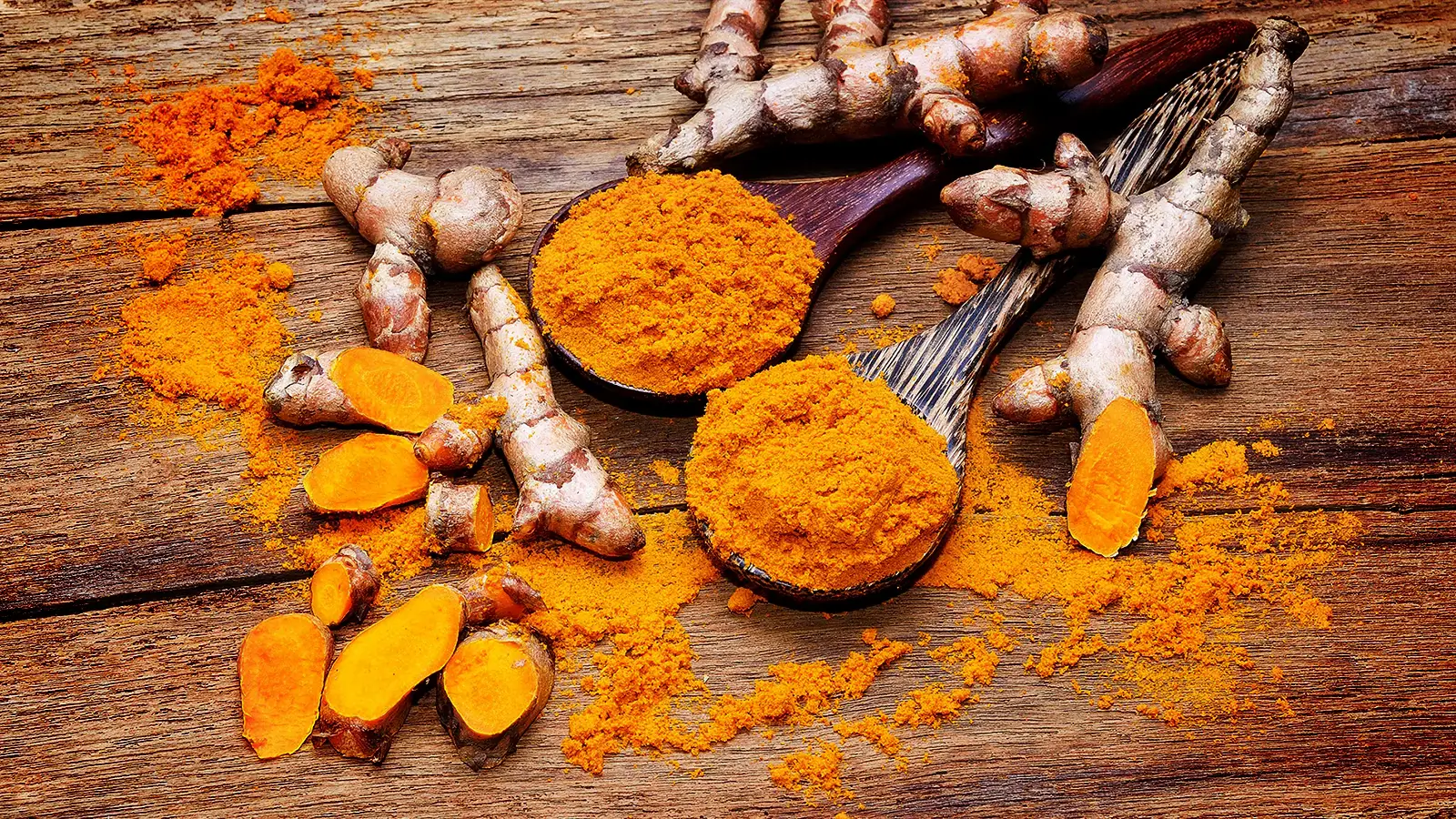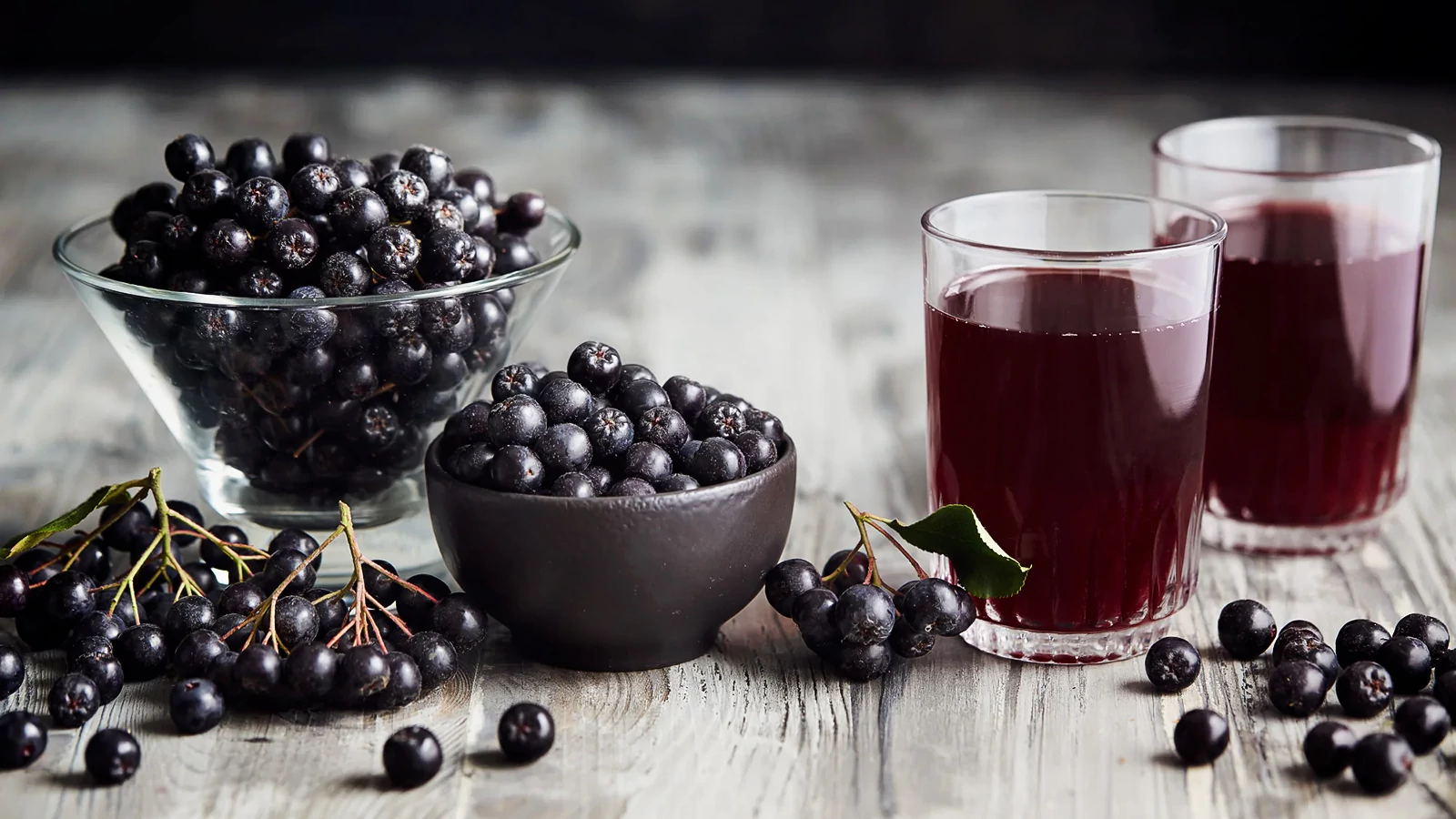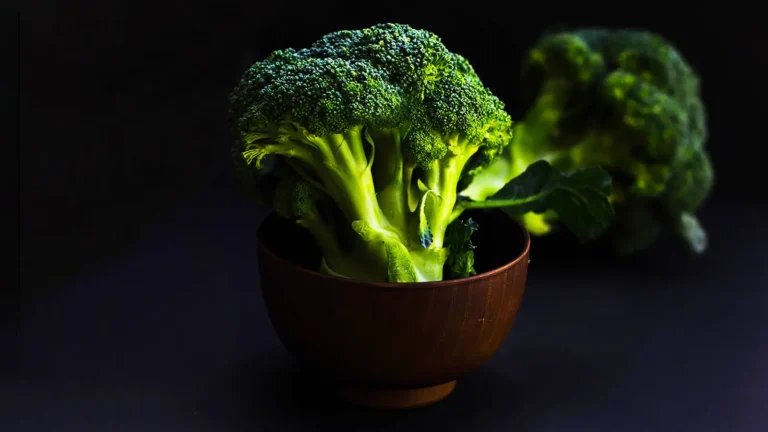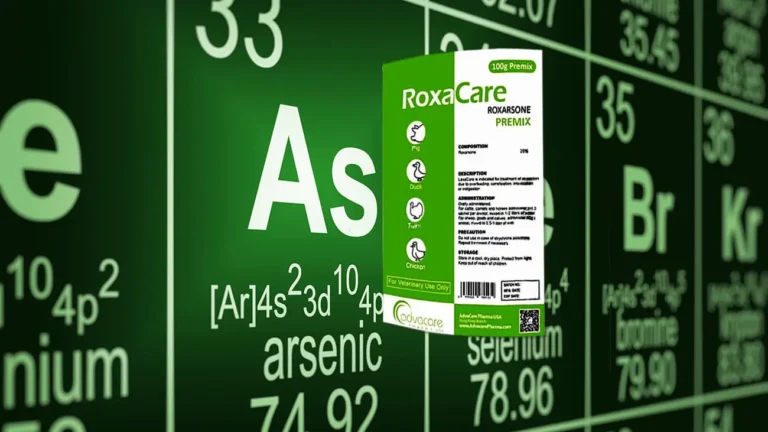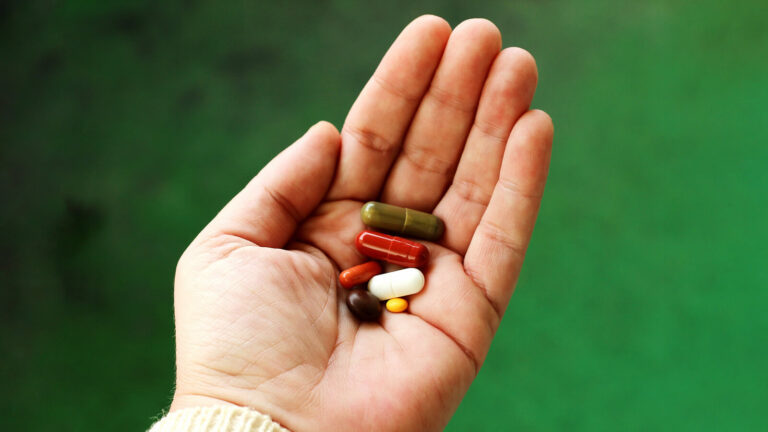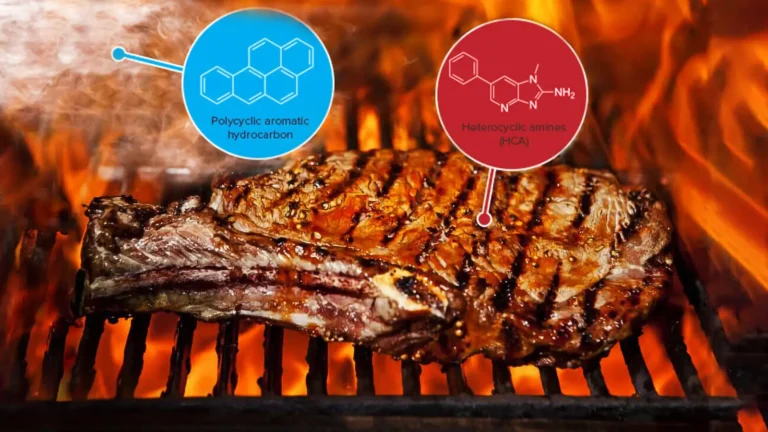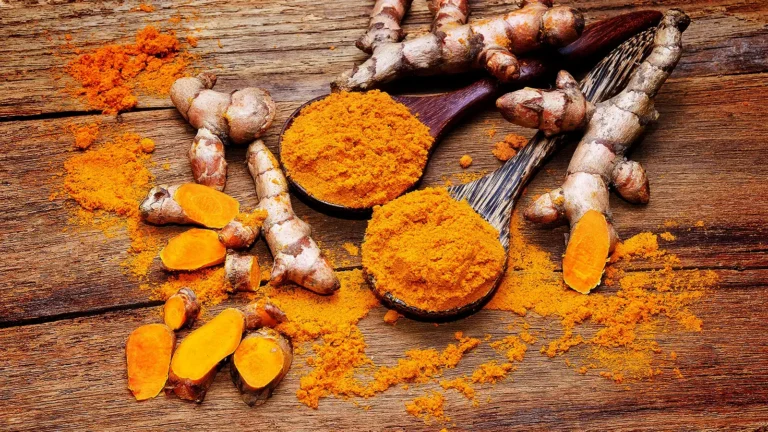Vorteile von Chlorella: Pflanzliches B12, Eisen, Zink und Entgiftung
Chlorella ist eine vegane Quelle für B12, Eisen und Zink, hat starke Chelatbildungseigenschaften für Schwermetalle, stärkt das Immunsystem, senkt den Cholesterinspiegel und das Anämierisiko.
Milos Pokimica
Geschrieben von: Milos Pokimica
Medizinisch Begutachtet Von: Dr. Xiùying Wáng, M.D.
Updated Januar 4, 2026Die zentralen Thesen:
– Chlorella hat die einzigartige Fähigkeit, Schwermetalle und Giftstoffe in Ihrem Körper zu binden und diese auszuspülen.
– Die Studien zeigten, dass Chlorella den Bleigehalt im Blut um satte 66 % reduzieren konnte und auch für Cadmium und andere Schwermetalle ein hohes Adsorptionsvermögen besitzt.
– Der Konsum von Chlorella vor dem Trinken von Alkohol kann dazu beitragen, den Prozess des Alkoholstoffwechsels zu beschleunigen und den Blutalkoholspiegel sowie den Acetaldehydspiegel zu senken (Saito et al., 2011).
– Koriander und Chlorella können durch verschiedene synergistische Mechanismen dabei helfen, Schwermetalle aus dem Körper zu entfernen. Koriander ist ein Kraut, das Schwermetalle aus den Geweben und Organen mobilisiert und zur Ausscheidung bereitstellt. Chlorella ist eine Grünalgenart, die Schwermetalle bindet und bei deren Ausscheidung hilft.
– Chlorella kann das Immunsystem unterstützen, indem es die Produktion und Aktivität weißer Blutkörperchen erhöht, die Funktion natürlicher Killerzellen verbessert, die Sekretion von Interferonen stimuliert und Entzündungen reduziert.
– Die Forscher fanden heraus, dass Chlorella den oxidativen Stress deutlich reduzierte und kognitiven Verfall und Gehirnentzündungen bei den Mäusen verhinderte.
– Chlorella kann dazu beitragen, die Übertragung von Dioxinen von der Mutter auf das Baby über die Muttermilch zu verhindern.
– Die Einnahme von Chlorella während der Schwangerschaft kann eine einfache und wirksame Möglichkeit sein, Ihren Ernährungszustand zu verbessern und das Risiko einer Schwangerschaftsanämie und PIH zu senken.
– In der Studie (Ryu et al., 2014), an der 63 Personen mit leicht hohem Cholesterinspiegel beteiligt waren, konnte die Chlorella-Gruppe eine signifikante Senkung des Gesamtcholesterins, der Triglyceride und des schlechten Cholesterins (LDL) verzeichnen. Chlorella kann die Aufnahme von Fetten aus der Nahrung und auch von der Leber ins Blut blockieren.
– Chlorella enthält Peptide, die natürliche ACE-Hemmer sind.
– Chlorella verringert die Steifheit der Blutgefäße, was die Funktion der Blutgefäße verbessert und den Blutdruck senkt.
– Chlorella weist unter allen Lebensmitteln eine der höchsten Konzentrationen an Nukleinsäuren auf. Durch die Bereitstellung einer reichhaltigen Nukleinsäurequelle kann der Chlorella-Wachstumsfaktor dabei helfen, beschädigte RNA und DNA zu reparieren und die normale Funktion der Zellen wiederherzustellen.
– Ratten, die 5 % oder 10 % Chlorella vulgaris in ihrer Nahrung erhielten, wiesen eine höhere Lipidausscheidung im Kot auf.
– Die Aufnahme von Chlorella beeinflusst die Expression vieler Gene, die an Signalübertragung, Stoffwechsel, Rezeptoren, Transportern und Zytokinen beteiligt sind.
– Die Aufnahme von Chlorella beeinflusste die Expression von Genen, die in direktem Zusammenhang mit der Glukoseaufnahme stehen.
– Die Ergänzung mit Chlorella erhöht den Vitamin-C- und Alpha-Tocopherol-Spiegel im Plasma um 15,7 %. Es erhöht auch die Aktivitäten von Katalase und Superoxiddismutase, Enzymen, die beim Abbau freier Radikale in den roten Blutkörperchen helfen.
– Chlorella enthält wasserlösliche Antioxidantien und verhindert nicht die Schädigung der Zellmembranen durch freie Radikale.
– Chlorella ist eine natürliche und vegane Quelle für bioverfügbares Vitamin B12, das Vegetariern und Veganern dabei helfen kann, einem Vitamin-B12-Mangel vorzubeugen oder ihn zu behandeln.
– Chlorella ist reich an Eisen und kann helfen, einer Eisenmangelanämie vorzubeugen.
– Zehn Gramm Chlorella würden uns eine empfohlene Tagesdosis für Zink von 75 % ergeben.
– Chlorella enthält auch Chlorophyll und ist eine der reichsten Chlorophyllquellen der Welt.
Was ist Chlorella?
Chlorella ist keine neue Modeerscheinung oder ein weiterer massenproduzierter Extrakt aus China. Es handelt sich um eine Art einzellige Süßwasser-Grünalge, die es seit Beginn der Evolution gibt und die von den Menschen seit Jahrhunderten als Nahrungsquelle genutzt wird. Sie ist in Taiwan und Japan heimisch und seit langem Teil der dortigen Kultur. Traditionell wird sie in großen Außenbecken unter natürlichem Sonnenlicht kultiviert. Sie gehört zur Familie der Grünalgen, d. h. sie enthält Chlorophyll, das Pigment, das Pflanzen ihre grüne Farbe verleiht.s
Wichtig ist, dass Chlorella ein Superfood oder eine nährstoffreiche Nahrungsquelle ist, die noch einige andere einzigartige gesundheitliche Vorteile bietet. Es enthält mehr Eiweiß als Fleisch, Eier oder Sojabohnen und mehr Eisen als Spinat oder Rinderleber. Es enthält außerdem zahlreiche Vitamine, Antioxidantien, Mineralien und einige andere einzigartige Eigenschaften. Es wurde auf sein Potenzial zur Senkung des Cholesterinspiegels, zur Verringerung des Anämierisikos während der Schwangerschaft und zur Stärkung des Immunsystems untersucht. Es verfügt über starke Chelateigenschaften für Schwermetalle und kann zur Behandlung verschiedener Gesundheitszustände eingesetzt werden.
Chlorella hat die einzigartige Fähigkeit, Schwermetalle und Toxine in Ihrem Körper zu binden und auszuspülen. Dies wird genannt Chelatbildung, und kann Ihnen helfen, sich von Umweltverschmutzung, Pestiziden, Quecksilber, Blei und anderen schädlichen Substanzen zu befreien.
Zusammenfassung:
Chlorella, ein uraltes Superfood voller Nährstoffe und einzigartiger Eigenschaften wie Chelatbildung (Bindung von Giftstoffen zur Entfernung), kann Vorteile bei der Senkung des Cholesterinspiegels, der Vorbeugung von Anämie, der Unterstützung des Immunsystems und der Entgiftung bieten.
Chlorella Vulgaris vs. Chlorella Pyrenoidosa.
Es gibt verschiedene Arten von Chlorella. Die beiden häufigsten sind Chlorella vulgaris und Chlorella pyrenoidosa. Beide sind großartige Nahrungsquellen, aber sie haben einige Unterschiede, die Sie kennen sollten.s
Der Hauptunterschied besteht darin, dass Chlorella pyrenoidosa eine besondere Struktur in ihrem Chloroplasten hat, die als Pyrenoid bezeichnet wird. Ein Chloroplast ist ein Teil der Zelle, der die Photosynthese, auf diese Weise wandeln die Algen Licht in Energie um. Ein Pyrenoid ist wie ein Turbolader für die Photosynthese. Es hilft den Algen, mehr Kohlendioxid aufzunehmen und mehr Stärke und andere Moleküle herzustellen.
Ein weiterer Unterschied ist, dass Chlorella pyrenoidosa eine dickere Zellwand hat als Chlorella vulgaris. Die Zellwand ist die äußere Schicht der Zelle, die sie vor der Umwelt schützt. Die Zellwand von Pyrenoidosa enthält mehr komplexe Zucker und Mineralien, wodurch sie Schwermetalle und Toxine besser binden und aus dem Körper ausschwemmen kann. Die Zellwand von Vulgaris ist dünner und leichter abbaubar, wodurch sie möglicherweise besser absorbierbar und proteinreicher ist.
Beide Arten haben ihre Vor- und Nachteile, je nachdem, wonach Sie suchen. Manche Menschen bevorzugen Pyrenoidosa wegen ihres höheren Gehalts an Vitaminen und Wachstumsfaktoren. Andere bevorzugen Vulgaris wegen des höheren Proteingehalts und der besseren Verdaulichkeit. Da wir bereits Nahrungsergänzungsmittel mit gebrochenen Zellwänden kaufen, und wenn das Nahrungsergänzungsmittel von hoher Qualität ist, entscheide ich mich in der Regel für Pyrenoidosa, aber der Unterschied ist nicht wesentlich.
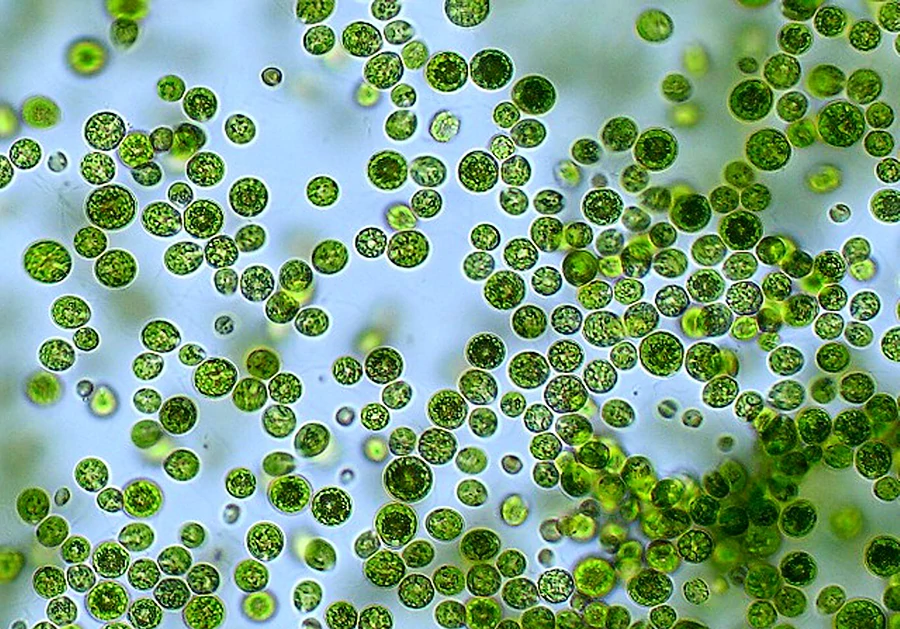
Zusammenfassung:
Während sowohl Chlorella vulgaris als auch Pyrenoidosa eine hervorragende Ernährung bieten, kann die dickere Zellwand von Pyrenoidosa die Entfernung von Toxinen fördern, während die dünnere Wand von Chlorella vulgaris eine leichtere Proteinabsorption begünstigt. Der Unterschied ist jedoch geringfügig.
Chlorella Mit Gebrochener Zellwand als Nahrungsergänzungsmittel.
Chlorella hat eine harte Zellwand, die unser Körper nicht verdauen kann. Wenn wir Chlorella mit ganzen Zellen einnehmen, entgehen uns die meisten der darin enthaltenen Nährstoffe. Wenn wir jedoch Chlorella mit aufgebrochenen Zellwänden einnehmen, können wir alle Nährstoffe aufnehmen und den größten Nutzen aus der Nahrungsergänzung ziehen.
Es gibt verschiedene Methoden zum Aufbrechen der Zellwand, z. B. Fermentation, Cracken und Pulverisierung. Jede Methode hat ihre Vor- und Nachteile.
Bei der Fermentation wird die Zellwand mit Hilfe von Hitze und Bakterien aufgebrochen. Dadurch kann die Zellwand weicher und besser verdaulich werden, aber es können auch einige der Nährstoffe reduziert und die Produktion von CGF (Chlorella Growth Factor) gestoppt werden, einem Wachstumsfaktor, der das Wachstum und die Reparatur Ihrer Zellen unterstützt. CGF stärkt auch Ihr Immunsystem und schützt Sie vor Infektionen.
Beim Cracken wird die Zellwand mit Hilfe von Schallvibrationen oder Hochdruckdüsen aufgebrochen. Dadurch kann die Zellwand brüchiger und leichter zu brechen werden, aber es funktioniert möglicherweise nicht sehr gut oder gleichmäßig. Einige Teile der Zellwand können intakt bleiben und verhindern, dass Sie die darin enthaltenen Nährstoffe aufnehmen können.
Bei der Pulverisierung wird die Zellwand mit mechanischer Kraft aufgebrochen, was in den meisten Fällen der Industriestandard ist. Dadurch kann die Zellwand in ein feines Pulver verwandelt und die Oberfläche vergrößert werden, aber es können auch einige Probleme auftreten. So kann die Chlorella beispielsweise durch Metallpartikel verunreinigt oder zu stark erhitzt werden.
Welche Methode ist also die beste? Meiner Meinung nach ist es das Knacken, aber es ist die teuerste und hängt von den Qualitäts- und Sicherheitsstandards des Herstellers ab. Auch bei der Cracking-Methode würde ich empfehlen, die Dosierung zu erhöhen, da einige der Zellwände nicht vollständig abgebaut werden und einige Teile des Pulvers unverdaulich sind, aber das Ausmaß hängt von der Qualität des Produkts ab. Die Fermentation ist die billigste und meiner Meinung nach schlechteste Methode, da sie zwar die Bioverfügbarkeit erhöht, aber die Produktion von CGF verringert. Dies ist eine einzigartige Eigenschaft von Chlorella, für die wir sie ursprünglich nutzen würden. Wenn wir möchten, könnten wir andere Nährstoffe über andere Nahrungsergänzungsmittel erhalten.
Zusammenfassung:
Wählen Sie Chlorella mit aufgebrochener Zellwand für eine maximale Nährstoffaufnahme, aber geben Sie dem Cracken Vorrang vor der Fermentation, wenn CGF (immunverstärkender Wachstumsfaktor) und Qualität die Kosten überwiegen. Beim Cracken kann aufgrund möglicher unvollständiger Zersetzungen eine etwas höhere Dosierung erforderlich sein.
Chlorella Schwermetall Entgiftung.
Schwermetalle sind Stoffe wie Quecksilber, Blei, Arsen und Kadmium, die sich im Laufe der Zeit im Körper ansammeln und schwerwiegende Probleme wie Gehirnschäden, Immunschwäche und Organversagen verursachen können. Sie sind überall in unserer Umwelt aus Luftverschmutzung, verunreinigtes Wasser, und Lebensmittel, sowohl organische als auch nicht-organische, oder wir können sie aus der Nahrung aufnehmen. Produkte, die wir für unsere Haut oder unser Haar verwenden. Auch wenn wir versuchen, Umweltverschmutzung zu vermeiden, erhalten wir immer noch eine große Summe an Toxizität.
Studien zeigen, dass Chlorella sehr effektiv mehrere schädliche Verbindungen aus dem Körper entfernt, darunter Schwermetalle wie Blei, Quecksilber, Arsen, und Kadmium. Es kann auch dazu beitragen, den Körper vor den Schäden zu schützen, die durch Schwermetallbelastung entstehen. Es kann den oxidativen Stress zu reduzieren Und Entzündung die Schwermetalle in Ihren Zellen verursachen. Es kann auch die Produktion von Glutathion, ein starkes Antioxidans, das hilft, Giftstoffe zu neutralisieren.
Die Toxizität von Schwermetallen, einschließlich der Toxizität von Cadmium und Blei, ist ein Problem, mit dem viele Länder konfrontiert sind.
Eine der Infektionen, die durch Blei verschlimmert werden können, wird durch ein Bakterium namens Listeria monocytogenes. Dieses Bakterium kann bei einigen Menschen schwere Krankheiten und sogar den Tod verursachen, insbesondere bei Menschen mit einem schwachen Immunsystem, wie Schwangeren, Neugeborenen, älteren Menschen und Menschen mit chronische Krankheit.
Eine Studie (Queiroz et al., 2003) zeigten, dass das Immunsystem von Mäusen, die Blei ausgesetzt und mit Listeria monocytogenes infiziert waren, stark beeinträchtigt war. Sie hatten weniger Blutzellen, die die Infektion bekämpfen und Entzündungen hervorrufen konnten. Sie hatten auch weniger Knochenmarkzellen, die neue Blutzellen bilden konnten. Sie hatten mehr Milzzellen, die Blutzellen außerhalb des Knochenmarks bildeten, was nicht normal ist. Und sie hatten kleinere Thymusdrüsen, die weniger Immunzellen produzierten.
Die Studie zeigte auch, dass das Immunsystem von Mäusen, die Chlorella zusammen mit Blei und Infektionen erhielten, wieder auf ein normales Niveau gebracht wurde. Sie hatten mehr Blutzellen, sie hatten mehr Knochenmarkzellen, sie hatten weniger Milzzellen, die Blutzellen außerhalb des Knochenmarks bildeten, und sie hatten größere Thymusdrüsen, die mehr Immunzellen bildeten.
Die Studie zeigte auch, dass Mäuse, die Chlorella erhielten, nachdem sie Blei ausgesetzt und mit Listeria monocytogenes infiziert worden waren, eine bessere Überlebenschance hatten. Sie waren in der Lage, einer tödlichen Dosis von Listeria monocytogenes besser zu widerstehen als Mäuse, die keine Chlorella erhalten hatten.
Die Studie zeigte auch, dass Chlorella besser wirkte, wenn es gleichzeitig mit der Bleiexposition verabreicht wurde, als wenn es nach der Bleiexposition verabreicht wurde. Dies lag daran, dass Chlorella verhindern konnte, dass das Blei in den Blutkreislauf und zu den Organen gelangte. Chlorella war auch in der Lage, die Produktion einer Substanz namens Interferon-Gamma anzuregen, die ein Schlüsselfaktor bei der Bekämpfung von Infektionen ist.
Die Studie zeigte auch, dass Chlorella die Bleikonzentration im Blut um ganze 66 % senken konnte. Das lag daran, dass Chlorella in der Lage war, das Blei zu chelatisieren oder zu binden und aus dem Körper zu entfernen.
In Bezug auf Cadmium zeigte diese Studie, dass Chlorella die Aufnahme von Cadmium in den Körper verringern und seine Ausscheidung erhöhen kann (Volgusheva et al., 2022). Eine andere Studie zeigte, dass Chlorella in der Lage war, innerhalb von 5 Minuten mehr als 95 % der Gesamtmenge an Cadmium aus dem Wasser zu entfernen (Carfagna et al., 2013). Die Studie zeigte auch, dass sowohl lebende als auch tote Chlorella-Biomasse eine hohe Adsorptionskapazität für Cadmium, wobei 96,8 % und 95,2 % der Gesamtmenge an Cadmium durch die tote bzw. die lebende Algenbiomasse entfernt wurden.
Eine andere Studie zeigte, dass Chlorella in der Lage war, die Zellen vor den Zytotoxizität Und Genotoxizität induziert durch Cadmium (Cheng et al., 2016). Die Studie zeigte auch, dass Chlorella in der Lage war, die Expression von Genen zu modulieren, die mit der Entgiftung von Metallen, der Reaktion auf oxidativen Stress, der DNA-Reparatur, der Regulierung des Zellzyklus und der Apoptose.
Zusammenfassung:
Chlorella entfernt effektiv Schwermetalle (Quecksilber, Blei, Arsen) aus Ihrem Körper und schützt vor deren Schäden, indem es Entzündungen reduziert und die Produktion von Antioxidantien steigert. Studien deuten darauf hin, dass es sogar das Immunsystem gegen bakterielle Infektionen stärkt, die durch die Belastung mit Schwermetallen wie Blei verschlimmert werden.
Chlorella Förderung des Alkoholstoffwechsels.
Verzehr von Chlorella vor Alkoholkonsum kann dazu beitragen, den Prozess des Alkoholstoffwechsels zu beschleunigen und den Blutalkoholspiegel und den Acetaldehydspiegel zu senken (Saito et al., 2011).
Alkohol wird von der Leber in eine giftige Substanz umgewandelt, die Acetaldehyd, acetaldehyd verursacht viele der unangenehmen Wirkungen von Alkohol, wie Kopfschmerzen, Übelkeit, Hautrötung und Herzrasen. Acetaldehyd wird dann in eine harmlose Substanz namens Acetat umgewandelt, die vom Körper ausgeschieden wird.
Die Studie (Saito et al., 2011) nahmen nur 6 gesunde Freiwillige teil, die 0,5 g/kg Ethanol tranken (was bei einer 60 kg schweren Person 750 mL Bier mit 4 % Alkohol entspricht), nachdem sie entweder Chlorella oder ein Placebo eingenommen hatten. In der Studie wurden die Ethanol- und Acetaldehydwerte im Blut und in der Atemluft der Probanden vor und nach dem Trinken gemessen.
Sie stellten fest, dass Chlorella den Ethanolspiegel im Blut deutlich senkte und dazu neigte, den Acetaldehydspiegel im Blut und den Ethanolspiegel in der Atemluft zu verringern. Die Studie ergab auch, dass Chlorella die Schläfrigkeit, den schnellen Herzschlag und das Glühen, das die Probanden nach dem Trinken empfanden, signifikant reduzierte.
Die Beweise sind jedoch bestenfalls begrenzt und widersprüchlich, und es sind weitere Untersuchungen erforderlich, um die potenziellen Vorteile und Mechanismen von Chlorella für den Alkoholstoffwechsel zu bestätigen.
Zusammenfassung:
Chlorella kann den Alkoholstoffwechsel verbessern, indem es den Ethanol- und Acetaldehydspiegel im Blut senkt und möglicherweise einige Katersymptome lindert, aber die Beweise sind begrenzt und weitere Forschung ist erforderlich.
Koriander und Chlorella Zusammen.
Koriander und Chlorella sind zwei natürliche Substanzen, die zusammen verwendet werden können, um den Körper von Schwermetallen zu entgiften. Koriander und Chlorella können durch verschiedene Mechanismen, die synergetisch wirken, dazu beitragen, Schwermetalle aus dem Körper zu entfernen. Um eine vollständige Entgiftung zu erreichen, brauchen wir beide Mechanismen.
Koriander ist ein Kraut, das Schwermetalle aus dem Gewebe und den Organen mobilisiert und sie so für die Ausscheidung verfügbar macht. Koriander kann auch dazu beitragen, den Körper vor oxidativem Stress und Entzündungen zu schützen, die durch Schwermetallbelastung verursacht werden.
Chlorella ist eine Grünalgenart, die Schwermetalle bindet und deren Ausscheidung unterstützt. Chlorella kann auch dazu beitragen, die Gesundheit und Funktion des Darms wiederherzustellen, was für die Entgiftung wichtig ist.
Um Koriander und Chlorella zusammen zur Schwermetallentgiftung zu verwenden, wird empfohlen, zuerst Chlorella einzunehmen, gefolgt von Koriander und dann Vitamin C einige Stunden später, um den Chelatbildungsprozess zu verstärken. Die Dosierung kann je nach den Bedürfnissen und der Toleranz des Einzelnen variieren, aber ein typischer Bereich ist 1 bis 9 Gramm Chlorella und eine Handvoll frischer Koriander pro Tag. Es ist ratsam, mit einer niedrigen Dosis zu beginnen und sie im Laufe der Zeit allmählich zu erhöhen, da der Körper überschüssige Toxizität im Fettgewebe ablagert.
Hauptsächlich aufgrund ihrer Lipophilie, POPs (persistente organische Schadstoffe) bioakkumulieren im Fettgewebe, und wenn wir zu viel von ihnen gleichzeitig freisetzen, können sie unseren Abwehrmechanismus überrennen und in unserem Gehirn landen oder andere Probleme verursachen. Ich würde jedem, der abnehmen möchte, empfehlen, Koriander und Chlorella einzubauen und Sulforaphan Und destilliertes Wasser Und hoher Gehalt an ORAC-Einheiten Und Vitamin C und viele andere Entgiftung Hilfsmittel während einer Diät. Es ist auch wichtig, viel Wasser zu trinken und sich ausgewogen ernähren zur Unterstützung des Entgiftungsprozesses.
Nach der Entgiftung können Sie weiterhin Koriander in der Küche und Chlorella als Nahrungsergänzungsmittel zur Vorbeugung verwenden.
Zusammenfassung:
Für eine wirksame Entgiftung von Schwermetallen kombinieren Sie Koriander (mobilisiert Metalle) und Chlorella (bindet und entfernt Metalle). Beginnen Sie niedrig und erhöhen Sie die Dosierung schrittweise, während Sie gleichzeitig auf eine ausreichende Flüssigkeitszufuhr und diätetische Unterstützung achten.
Stärkung des Immunsystems.
Chlorella kann dem Immunsystem unter anderem auf folgende Weise helfen:
- Steigerung der Produktion und der Aktivität der weißen Blutkörperchen, der Zellen, die Krankheitserreger und Fremdstoffe abwehren (Otsuki et al., 2011).
- Verbesserung der Funktion der natürlichen Killerzellen, einer Art weißer Blutkörperchen, die Krebszellen und virusinfizierte Zellen zerstören können (Kwak et al., 2012).
- Stimulierung der Sekretion von Interferonen, d. h. von Proteinen, die die Virusreplikation verhindern und andere Immunzellen aktivieren (Kwak et al., 2012).
- Verringerung von Entzündungen, die eine häufige Reaktion auf Infektionen oder Verletzungen sind, aber auch Gewebeschäden und chronische Krankheiten verursachen können, wenn eine chronische Entzündung vorliegt.
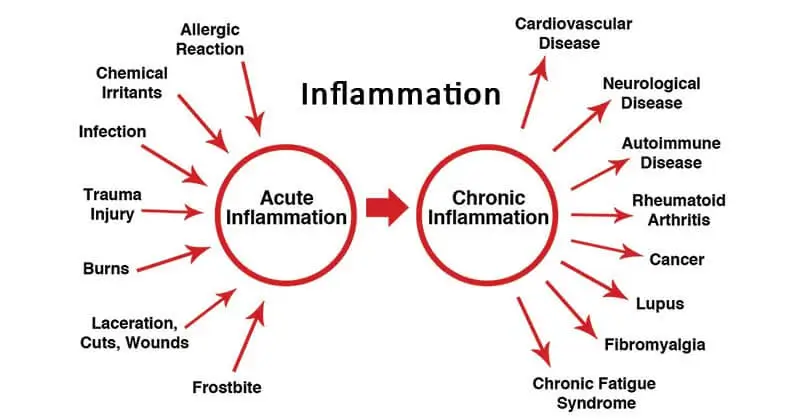
In der Studie (Otsuki et al., 2011) untersuchten Forscher, ob die Einnahme von Chlorella das Immunsystem stärken kann, indem sie die Menge an Immunglobulin A, SIgA, einem Antikörper, der Mund und Rachen vor Infektionen schützt, erhöht. An der Studie nahmen 15 Männer teil, die vier Wochen lang entweder Chlorella- oder Placebo-Tabletten einnahmen und ihre SIgA-Werte im Speichel davor und danach maßen. Die Studie ergab, dass Chlorella den SIgA-Spiegel im Speichel und die Sekretionsrate erhöht. Die SIgA-Konzentrationen im Speichel waren signifikant erhöht, während dies bei Placebo nicht der Fall war. Die Studie kam zu dem Schluss, dass Chlorella die Immunfunktion der Schleimhäute beim Menschen verbessern kann.
In der Studie (Kwak et al., 2012) haben Forscher untersucht, ob die Einnahme von Chlorella das Immunsystem stärken kann, indem sie die Produktion und Aktivität von natürliche Killerzellen (NK) und bestimmte Zytokine, die Proteine sind, die Entzündungen und Immunität regulieren. Die Studie verwendete ein randomisiertes, doppelblindes, placebokontrolliertes Design, um die Auswirkungen von Chlorella (5 g/Tag) oder Placebo-Tabletten über 8 Wochen bei 51 gesunden Menschen zu vergleichen. In der Studie wurden die NK-Zellaktivität und die Serumspiegel von Interferon-γ, Interleukin-1β und Interleukin-12 gemessen, also von Zytokinen, die die Immunantwort fördern. Die Studie ergab, dass Chlorella die NK-Zellaktivität und die Serumspiegel von Interferon-γ, Interleukin-1β und Interleukin-12 signifikant erhöhte, während Placebo dies nicht tat. Die Studie ergab auch, dass die Veränderungen der NK-Zellaktivität und der Zytokinspiegel positiv miteinander korreliert waren. Die Studie kam zu dem Schluss, dass Chlorella eine positive Wirkung auf das Immunsystem haben kann, indem sie die NK-Zellen und die Zytokine stimuliert, die die Immunantwort bei gesunden Menschen verbessern.
Alle diese Studien wurden zu den kurzfristigen Vorteilen durchgeführt, was bedeutet, dass die menschlichen Testpersonen nach nur 2 Monaten Verbesserungen in ihrem Immunsystem feststellen konnten (Kwak et al., 2012). In (Otsuki et al., 2011)-Studie stellten menschliche Probanden innerhalb von 4 Wochen Verbesserungen fest.
Zusammenfassung:
Chlorella stärkt Ihr Immunsystem, indem es weiße Blutkörperchen, natürliche Killerzellen und schützende Immunglobuline stärkt – Studien zeigen potenzielle Vorteile innerhalb von nur 4–8 Wochen. Erwägen Sie, es zur langfristigen Immununterstützung in Ihre Routine zu integrieren.
Schutz vor Demenz.
Chlorella kann unter anderem zum Schutz vor Demenz beitragen:
- Verringerung des oxidativen Stresses. Oxidativer Stress kann die Gehirnzellen schädigen und zu kognitivem Abbau und Demenz beitragen.
- Verbesserung der Durchblutung und der Sauerstoffversorgung des Gehirns, was für die Aufrechterhaltung der Gehirnfunktion und die Vorbeugung von ischämischen Schlaganfällen, einer häufigen Ursache von vaskulärer Demenz, unerlässlich ist. Chlorella kann die Durchblutung und die Sauerstoffversorgung verbessern, indem sie den Blutdruck, den Cholesterinspiegel und die Triglyceride senkt, die Risikofaktoren für Herz-Kreislauf-Erkrankungen sind. Sie kann auch die Produktion von Stickstoffmonoxid erhöhen, ein Molekül, das die Blutgefäße entspannt und die Durchblutung verbessert.
- Modulierung von Entzündungen, die eine normale Reaktion auf Infektionen oder Verletzungen sind, aber auch zu chronischen Entzündungen im Gehirn führen können, wenn sie zu stark oder zu lange andauern. Chronische Entzündungen können die Aktivierung von Immunzellen, den Mikroglia, auslösen, die entzündungsfördernde Zytokine und neurotoxische Substanzen freisetzen können, die die Gehirnfunktion beeinträchtigen und die Neurodegeneration fördern.
Die Beweise für die Wirkung von Chlorella bei Demenz sind jedoch nicht schlüssig. Die meisten Studien wurden an Tieren oder in vitro-Modellen durchgeführt, die möglicherweise nicht die Situation beim Menschen widerspiegeln.
In der Studie mit Mäusen aus dem Jahr 2009 wurde getestet, ob Chlorella verhindern kann altersbedingte kognitive Beeinträchtigung verursacht durch oxidativen Stress und Aldehydakkumulation in einem Mausmodell (Nakashima et al., 2009). Die Studie verwendete transgene Mäuse mit einem Mangel an einem Enzym, das Aldehyde entgiftet, und fütterte sie 12 Monate lang mit oder ohne Chlorella. Zytotoxische Aldehyde entstehen aus oxidierten Fetten und ihre Anreicherung im Gehirn könnte für altersbedingte Neurodegeneration verantwortlich sein. Dazu gehören Demenz und Krankheiten wie die Alzheimer-Krankheit. Da Enzyme solche Aldehyde entgiften, verwendeten sie transgene Mäuse mit mitochondrialem Enzymmangel als altersabhängiges Demenzmodell. In der Studie wurden oxidativer Stress, kognitive Fähigkeiten und Gehirnentzündungen gemessen. Die Forscher fanden heraus, dass Chlorella den oxidativen Stress deutlich reduziert und den kognitiven Abbau sowie die Entzündung des Gehirns bei den Mäusen verhindert. Die Studie kam zu dem Schluss, dass Chlorella eine schützende Wirkung gegen altersbedingte Demenz haben könnte. Zumindest in dem Mäusemodell. Chlorella sollte nicht als Ersatz für eine ausgewogene Ernährung, regelmäßige Bewegung oder eine medizinische Behandlung von Demenz oder ähnlichen Erkrankungen verwendet werden.
Zusammenfassung:
Auch wenn die Beweise noch vorläufig sind, erweist sich Chlorella als vielversprechend beim Schutz vor Demenz, indem es die Schädigung von Gehirnzellen reduziert, die Durchblutung steigert und Entzündungen moduliert. Es sind jedoch weitere Untersuchungen erforderlich, um den Nutzen für den Menschen zu bestätigen.
Vorteile von Chlorella in der Schwangerschaft.
Einige der Vorteile von Chlorella-Ergänzungen während der Schwangerschaft sind:
- Hoher Nährstoffgehalt, einschließlich Eisen, Folsäure und Vitamin B-12. Diese Nährstoffe sind wichtig für die Produktion roter Blutkörperchen, die DNA-Synthese und die Entwicklung des Neuralrohrs beim Baby. Es kann zur Vorbeugung oder Behandlung von Anämie beitragen, einer häufigen Erkrankung während der Schwangerschaft, die zu Müdigkeit, Schwäche und einem erhöhten Infektionsrisiko führen kann.
- Bindet Schwermetalle und unterstützt so die Entgiftung. Es kann dazu beitragen, Schwermetalle aus dem Körper zu entfernen, indem es sie bindet und ihre Ausscheidung erleichtert. Dies kann die Exposition von Mutter und Kind gegenüber diesen Toxinen verringern und ihre Gesundheit verbessern.
- Hält die Blutdruckwerte unter Kontrolle. Bluthochdruck kann das Risiko erhöhen für Präeklampsie, dies ist eine ernste Erkrankung während der Schwangerschaft, die zu Krampfanfällen, Organversagen und zum Tod von Mutter und Kind führen kann. Es kann helfen, den Blutdruck zu senken, indem es die Funktion der Blutgefäße verbessert, Entzündungen reduziert, die Produktion von Stickstoffmonoxid erhöht und den Cholesterinspiegel senkt.
Die Einnahme von Chlorella während der Schwangerschaft ist jedoch nicht ohne Risiken. Einige mögliche Risiken sind:
- Allergische Reaktionen.
- Verunreinigung. Verunreinigungen können durch schlechte Herstellungspraktiken, Umweltverschmutzung oder unsachgemäße Lagerung entstehen.
- Wechselwirkungen mit Medikamenten. Es kann die Aufnahme oder Wirksamkeit von Antikoagulantien (Blutverdünner, die die Blutgerinnung verhindern), Immunsuppressiva (Medikamente, die das Immunsystem unterdrücken) oder oralen Kontrazeptiva (Antibabypillen, die eine Schwangerschaft verhindern) beeinträchtigen.
Wenn Sie schwanger sind, möchten Sie alles tun, um eine gesunde und reibungslose Schwangerschaft für sich und Ihr Baby zu gewährleisten. Allerdings können manchmal Herausforderungen und Komplikationen auftreten, die Ihr Wohlbefinden und die Entwicklung Ihres Babys beeinträchtigen können. Sie müssten sowohl an Ihre Gesundheit als auch an die Ihres Babys denken.
Das erste Problem für Säuglinge in der modernen Welt ist die Toxizität. Die Muttermilch ist nicht nur eine Nahrungsquelle für die Kinder, sondern schützt sie auch vor schädlichen Keimen und Krankheiten. In den meisten Fällen enthält die Muttermilch jedoch Dioxine und andere POPs wegen ihrer Toxizität in der Umwelt. Sie wissen es vielleicht nicht, aber eine der besten Möglichkeiten für Frauen, ihren Körper zu entgiften, ist eine Schwangerschaft. Das Baby nimmt viele Giftstoffe der Mutter auf. Dioxine sind lipophile giftige Chemikalien, die gesundheitliche Probleme verursachen können. Dioxine kommen in vielen Lebensmitteln und in der Umwelt vor sie können sich im Laufe der Zeit im Körper anreichern, da sie sich in Fett und nicht in Wasser auflösen.
Eine mögliche Lösung für die Toxizität besteht darin, so viel wie möglich zu vermeiden indem sie in einer Nahrungskette ganz unten stehen und die zweite besteht darin, unserem Körper zu helfen, sie zu beseitigen, indem wir während der Schwangerschaft ein natürliches Ergänzungsmittel wie Chlorella einnehmen. In dieser Studie (Nakano et al., 2007) beobachteten sie 35 schwangere Frauen in Japan, wo die Dioxinwerte in der Muttermilch relativ hoch sind. Sie teilten sie in zwei Gruppen ein: eine Gruppe nahm während der Schwangerschaft täglich Chlorella-Tabletten ein, die andere Gruppe nicht. Nach der Geburt sammelten und analysierten sie dann ihre Muttermilch- und Blutproben.
Die Forscher fanden heraus, dass die Frauen, die Tabletten einnahmen, deutlich weniger Dioxin aufwiesen. Dies bedeutet, dass Chlorella dazu beitragen kann, die Übertragung von Dioxinen von der Mutter auf das Kind über die Muttermilch zu verhindern. Sie fanden außerdem heraus, dass die Frauen, die Tabletten einnahmen, deutlich höhere Werte an Immunglobulin (Ig) A in der Muttermilch aufwiesen. IgA ist ein Antikörper, der bei der Bekämpfung von Infektionen im Mund, Rachen und Verdauungstrakt des Babys hilft. Durch die Erhöhung des IgA-Spiegels in der Muttermilch kann Chlorella dazu beitragen, das Infektionsrisiko für gestillte Babys zu verringern.
In der Gruppe, die keine Chlorella einnahm, wurde kein signifikanter Zusammenhang zwischen Dioxin und IgA-Spiegel in der Muttermilch festgestellt. Dies deutet darauf hin, dass die normale Dioxinexposition über die Nahrung keinen großen Einfluss auf den IgA-Spiegel in der Muttermilch hat. Die Einnahme von Chlorella kann jedoch zusätzliche Vorteile sowohl für den Dioxin- als auch für den IgA-Spiegel in der Muttermilch haben.
Eine weitere häufige Erkrankung ist Bluthochdruck während der Schwangerschaft. Die Forschung deutet darauf hin, dass es den Bluthochdruck während der Schwangerschaft senken könnte.
Zwei der häufigsten und schwerwiegendsten Probleme, die bei schwangeren Frauen auftreten können, sind Schwangerschaftsanämie und schwangerschaftsbedingter Bluthochdruck (PIH).
Schwangerschaftsanämie ist ein Zustand, bei dem Sie einen niedrigen Gehalt an roten Blutkörperchen oder Hämoglobin haben, die Sauerstoff zu Ihren Geweben und Organen transportieren. Dies kann dazu führen, dass Sie sich müde, schwach, schwindlig und kurzatmig fühlen. Sie kann auch das Risiko einer Frühgeburt, eines geringen Geburtsgewichts und von Nachgeburtsblutungen erhöhen. Eine Schwangerschaftsanämie wird häufig durch einen Mangel an Eisen, Folsäure oder Vitamin B-12 in Ihrer Ernährung verursacht, die für die Bildung roter Blutkörperchen unerlässlich sind.
PIH ist eine Erkrankung, bei der Sie während der Schwangerschaft einen hohen Blutdruck haben, der Ihre Nieren, Ihre Leber, Ihr Gehirn und Ihre Plazenta schädigen kann. Außerdem kann es zu Proteinurie (Eiweiß im Urin) und Ödemen (Schwellungen in Beinen, Füßen und Händen) kommen. PIH kann zu Präeklampsie, Eklampsie oder dem HELLP-Syndrom führen, die lebensbedrohliche Komplikationen für Sie und Ihr Baby darstellen. PIH wird häufig durch schlechte Ernährung, Stress, Fettleibigkeit oder genetische Faktoren verursacht.
Manchmal kann es sein es ist schwierig, genügend Nährstoffe allein über die Nahrung aufzunehmen, insbesondere wenn Sie unter morgendlicher Übelkeit, Nahrungsmittelaversionen oder diätetischen Einschränkungen leiden. In diesem Fall müssen Sie möglicherweise ein Nahrungsergänzungsmittel einnehmen, das Sie mit diesen Nährstoffen versorgt. Chlorella ist reich an Eisen, Folsäure, Vitamin B-12 und anderen Vitaminen und Mineralstoffen, die Ihre Gesundheit und das Wachstum Ihres Babys unterstützen können.
Aber funktioniert es zur Vorbeugung von Schwangerschaftsanämie und PIH?
Diese Studie wurde von denselben Forschern durchgeführt (Nakano et al., 2009) mit 70 schwangeren Frauen in Japan. Sie teilten sie in zwei Gruppen ein: Die eine Gruppe nahm von der 12. bis zur 18. Schwangerschaftswoche bis zur Entbindung täglich 6 Gramm Chlorella-Tabletten ein, die andere Gruppe nicht. Anschließend wurden die Hämoglobinwerte, der Blutdruck, die Proteinurie und die Ödeme in verschiedenen Stadien der Schwangerschaft gemessen.
Die Forscher fanden heraus, dass die Frauen, die Chlorella einnahmen, signifikant seltener an Anämie erkrankten als die Frauen, die dies nicht taten. Auch Proteinurie und Ödeme traten bei ihnen deutlich seltener auf als bei den Frauen, die keine Chlorella einnahmen. Diese Ergebnisse deuten darauf hin, dass Chlorella dazu beitragen kann, Anämie in der Schwangerschaft und PIH zu verhindern oder deren Schweregrad zu verringern, indem es ausreichend Eisen, Folat, Vitamin B-12 und andere nützliche Nährstoffe liefert.
Zusammenfassend legt die Studie nahe, dass die Einnahme von Chlorella während der Schwangerschaft eine einfache und wirksame Möglichkeit sein kann, Ihren Ernährungszustand zu verbessern und das Risiko einer Schwangerschaftsanämie und PIH zu senken. Es kann auch andere Vorteile für Ihre Gesundheit und die Entwicklung Ihres Babys haben. Wenn Sie schwanger sind oder planen, schwanger zu werden, sollten Sie darüber nachdenken, Chlorella als natürliche Ergänzung zu Ihrem Tagesablauf hinzuzufügen.
Zusammenfassung:
Chlorella bietet während der Schwangerschaft zahlreiche Vorteile, darunter Eisen und Folsäure für die Entwicklung des Babys, die Entgiftung von Schwermetallen und die Kontrolle des Blutdrucks. Studien deuten darauf hin, dass es den Dioxinspiegel in der Muttermilch sogar senken und das Risiko einer Schwangerschaftsanämie und Bluthochdruck verringern kann. Sprechen Sie mit Ihrem Arzt, bevor Sie während der Schwangerschaft Nahrungsergänzungsmittel einnehmen.
Biologischer Abbau von Bisphenol A (BPA).
Östrogen ist ein Hormon, das für viele Aspekte unserer Gesundheit eine wichtige Rolle spielt. Das Problem ist, dass es einige Chemikalien gibt, die Östrogen imitieren und ein hormonelles Ungleichgewicht verursachen können.
Diese Chemikalien werden als Xenoöstrogene, und sie sind überall. Man findet sie in Pestiziden, Kunststoffen, Kosmetika, Reinigungsmitteln und sogar in den Lebensmitteln, die wir essen. Sie können über die Luft, das Wasser, das wir trinken, oder den Boden in unseren Körper gelangen. Und wenn sie erst einmal im Körper sind, können sie wie Östrogen wirken und sich an unsere Hormonrezeptoren binden, wodurch unsere natürliche Hormonproduktion und -funktion gestört wird.
Xenoöstrogene können das Risiko erhöhen, an verschiedene Arten von Krebs, sie können auch zu anderen gesundheitlichen Problemen führen, wie z. B. Unfruchtbarkeit, Endometriose, Myome, Fettleibigkeit, Diabetes und Schilddrüsenerkrankungen. Sie können auch andere Gesundheitsprobleme verursachen, z. B. Unfruchtbarkeit, Endometriose, Myome, Fettleibigkeit, Diabetes und Schilddrüsenerkrankungen.
Bisphenol A (BPA) ist eines der stärksten und am meisten verbreiteten Xenoöstrogene in der Umwelt. Der Grund dafür ist, dass es häufig in Kunststoffprodukten enthalten ist und in die Umwelt gelangen kann, insbesondere in Mülldeponien.
Die gute Nachricht ist, dass Chlorella Xenoöstrogene biologisch abbauen kann.
Eine Studie aus dem Jahr 2005 (Hirooka et al., 2005) zeigten, dass Chlorella fusca 90 % eines Xenoöstrogens namens Bisphenol A (BPA) aus einer Laborkultur entfernt.
In der Studie (Hirooka et al., 2005) haben Forscher ein Experiment durchgeführt, bei dem sie dem Wasser, in dem Chlorella fusca wuchs, unterschiedliche Mengen an BPA zusetzten. Wir änderten auch die Lichtmenge, die die Alge erhielt, da Licht für ihr Wachstum und ihren Stoffwechsel wichtig ist. Anschließend wurde gemessen, wie viel BPA nach 168 Stunden (7 Tagen) noch im Wasser und in den Zellen der Alge vorhanden war.
Die Studie ergab, dass Chlorella fusca in der Lage war, fast das gesamte BPA aus dem Wasser zu entfernen, unabhängig davon, wie viel BPA die Forscher hinzufügten, solange sie genügend Licht erhielt. Bei 18 Watt Licht pro Quadratmeter, was einem hellen Tag entspricht, entfernte sie mehr als 99 % des BPA aus dem Wasser.
Sie überprüften auch, wie viel BPA sich in den Algenzellen befand. Sie stellten fest, dass die BPA-Menge in den Zellen viel geringer war als die BPA-Menge, die aus dem Wasser entfernt wurde. Das bedeutet, dass Chlorella fusca das BPA nicht nur absorbiert, sondern tatsächlich in einfachere Verbindungen abgebaut hat. Die Forscher maßen auch die östrogene Aktivität des Wassers, ein Maß dafür, wie stark BPA oder andere Chemikalien das weibliche Hormon Östrogen nachahmen und den Hormonhaushalt von Tieren und Menschen beeinflussen können. Sie fanden heraus, dass die östrogene Aktivität des Wassers vollständig verschwand, nachdem Chlorella fusca das BPA aus dem Wasser entfernt hatte. Das bedeutet, dass sie BPA in Verbindungen umwandelte, die keine östrogene Wirkung haben und für lebende Organismen unbedenklich sind.
Dieses Experiment hat gezeigt, dass Chlorella fusca ein wirksames und natürliches Mittel ist, um BPA aus dem Sickerwasser von Mülldeponien zu entfernen, was als Umweltmaßnahme wichtig sein könnte. Abgestorbenes Pulver baut BPA vielleicht nicht auf die gleiche Weise ab, aber es könnte bei der Ausscheidung und Chelatbildung von Xenoöstrogenen aus unserem Körper helfen.
Es sind weitere Untersuchungen erforderlich, um die Wirksamkeit und Sicherheit von Nahrungsergänzungsmitteln zu bestätigen, d. h. von Pulver, das die toten Zellwände aufbricht, um BPA zu binden und aus dem menschlichen Körper zu entfernen. Die Logik ist, dass, wenn lebende Chlorella Enzyme hat, die BPA binden und biologisch abbauen, diese Enzyme auch in dem Pulver vorhanden sein würden. Wir wissen es noch nicht genau.
Zusammenfassung:
Chlorella, ein wirksamer Xenoöstrogen-Bioabbauer, ist vielversprechend bei der Entfernung von BPA aus der Umwelt und möglicherweise Ihrem Körper. Es sind jedoch weitere Untersuchungen erforderlich, um seine Wirksamkeit und Sicherheit als Ergänzung zur BPA-Beseitigung beim Menschen zu bestätigen.
Senkt den Cholesterinspiegel.
Millionen von Menschen haben mit einem hohen Cholesterinspiegel zu kämpfen, der das Risiko von Herzerkrankungen und Schlaganfällen erhöhen kann.
Chlorella enthält viele Antioxidantien. Einige dieser Antioxidantien sind Carotinoide. Carotinoide sind gut für Augen und Haut. Aber wussten Sie, dass sie auch zur Senkung des Cholesterinspiegels beitragen können? Das hat eine aktuelle Studie herausgefunden.
Die Studie (Ryu et al., 2014) nahmen 63 Personen mit leicht erhöhtem Cholesterinspiegel teil, die in zwei Gruppen aufgeteilt wurden. Eine Gruppe nahm vier Wochen lang täglich 5 Gramm ein, während die andere Gruppe ein Placebo einnahm.
Die Chlorella-Gruppe verzeichnete im Vergleich zur Placebo-Gruppe eine signifikante Reduzierung des Gesamtcholesterins, der Triglyceride und des schlechten Cholesterins (LDL). Sie verzeichneten auch einen signifikanten Anstieg von Lutein/Zeaxanthin und Alpha-Carotin, zwei Arten von Carotinoiden, die in Chlorella vorkommen. Diese Veränderungen deuten darauf hin, dass Chlorella die Aufnahme von Fetten aus der Nahrung, aber auch der Leber ins Blut blockieren kann. Beim Menschen wird Cholesterin von der Leber produziert und wir müssen es nicht essen. Jedes Gramm Cholesterin in der Nahrung ist ein Überschuss, der entgiftet werden muss. Bei fleischfressenden Tieren ist Cholesterin ein essentielles Vitamin, da sie kein eigenes Vitamin produzieren.
Die Studie ergab, dass die Veränderungen des Cholesterinspiegels mit den Veränderungen der Carotinoide zusammenhingen. Das heißt, je mehr Carotinoide Sie im Blut haben, desto niedriger ist Ihr Cholesterinspiegel. Das ist eine gute Nachricht für Menschen, die ihren Cholesterinspiegel auf natürliche und sichere Weise senken wollen, vor allem, wenn sie Gemüsesaft mit hohem Carotinoidgehalt in ihre Ernährung aufnehmen.
Zusammenfassung:
Chlorella fördert die Gesundheit des Herzens, da es dank seiner Carotinoide den Cholesterinspiegel deutlich senkt und eine natürliche und vielversprechende Alternative zur Cholesterinkontrolle darstellt. Erwägen Sie, es zusammen mit einer Diät mit hohem Carotinoidgehalt in Ihre Routine zu integrieren.
Verbessert den Blutdruck.
Chlorella enthält viele Nährstoffe, die sich positiv auf den Blutdruck auswirken können.
Einer dieser Nährstoffe ist die Omega-3-Fettsäure, eine Art gesundes Fett, das Entzündungen und den Cholesterinspiegel in Ihrem Blut senken kann. Omega-3-Fettsäuren können auch dazu beitragen, die Blutgefäße zu entspannen und zu erweitern, was den Druck in den Gefäßen senken kann.
Ein weiterer Nährstoff ist Kalium, ein Mineral, das die Natriummenge in Ihrem Körper ausgleichen kann. Natrium ist einer der Hauptverursacher von Bluthochdruck, da es zu Wassereinlagerungen im Körper führt und das Blutvolumen in den Arterien erhöht. Kalium kann dazu beitragen, überschüssiges Natrium und Wasser aus dem Körper auszuspülen, was den Blutdruck senken kann.
Ein dritter Nährstoff ist ein Peptid, ein kleines Protein, das als natürlicher Wirkstoff fungieren kann. ACE Hemmer. Chlorella enthält diese Peptide, die natürliche ACE-Hemmer sind (Jiang et al., 2021). ACE-Hemmer sind Medikamente, die ein Enzym namens Angiotensin-Converting Enzyme (ACE) blockieren, das ein Hormon namens Angiotensin II produziert. Angiotensin II bewirkt, dass sich Ihre Blutgefäße verengen und Ihr Blutdruck steigt. Das Peptid kann ACE daran hindern, Angiotensin II zu produzieren, wodurch die Blutgefäße weit bleiben und der Blutdruck gesenkt wird.
Diese drei Nährstoffe wirken zusammen, um Ihren Blutdruck auf unterschiedliche Weise zu verbessern. Und das Beste daran ist, dass Sie nicht viel davon einnehmen müssen, um die Ergebnisse zu sehen. Studien haben gezeigt, dass die Einnahme von nur vier Gramm pro Tag das Auftreten von Bluthochdruck reduzieren kann. Chlorella kann sowohl den systolischen als auch den diastolischen Blutdruck senken, das sind die beiden Zahlen, die den Druck in Ihren Arterien messen, wenn Ihr Herz schlägt und ruht.
Chlorella kann auch die Steifheit der Blutgefäße verringern, was die Funktion der Blutgefäße verbessert und den Blutdruck senkt. Einer der wichtigsten Faktoren, die sich auf die Gesundheit Ihres Herzens auswirken, ist die Arteriensteifigkeit. Damit ist gemeint, wie hart oder flexibel Ihre Arterien sind. Wenn Ihre Arterien steif sind, muss Ihr Herz härter arbeiten, um Blut durch sie zu pumpen, und das kann Ihr Risiko für Bluthochdruck, Herzinfarkt und Schlaganfall erhöhen. Wenn wir älter werden, werden die Arterien steifer und weniger elastisch. Dies wird als Arterienversteifung bezeichnet und kann das Risiko von Herzerkrankungen, Schlaganfällen und Demenz erhöhen. Arterielle Steifigkeit kann durch verschiedene Faktoren verursacht werden, wie z. B. Alterung, Rauchen, Diabetes, Fettleibigkeit und Entzündungen.
Die Studie (Otsuki et al., 2013) nahmen 14 junge Männer teil, die vier Wochen lang entweder ein Placebo oder Chlorella-Tabletten einnahmen, wobei zwischen den beiden Versuchen eine Pause von 12 Wochen lag.
Die Chlorella-Gruppe hatte nach vier Wochen einen deutlichen Rückgang der Arteriensteifigkeit zu verzeichnen, während die Placebo-Gruppe keine Veränderung aufwies. Ihr Blutdruck und ihre Herzfrequenz veränderten sich nicht, was bedeutet, dass Chlorella keine negativen Auswirkungen auf ihr Herz-Kreislauf-System hatte.
Die Forscher analysierten die Chlorella-Tabletten und stellten fest, dass sie zahlreiche Nährstoffe enthalten, die zur Verringerung der Arteriensteifigkeit beitragen können. Dazu gehören antioxidative Vitamine wie Vitamin C und E, die die Arterien vor Schäden schützen können; Arginin, eine Aminosäure, die die Produktion von Stickstoffmonoxid ankurbeln kann, einem Molekül, das die Arterien entspannen kann; Kalium und Kalzium, Mineralien, die die Kontraktion und Entspannung der Arterien regulieren können; und n-3 ungesättigte Fettsäuren, gesunde Fette, die Entzündungen und Cholesterin senken können.
Einige Untersuchungen deuten darauf hin, dass Chlorella die Gesundheit der Arterien verbessert, indem es den Stickoxidspiegel erhöht. NO ist ein Molekül, das von den Zellen, die die Blutgefäße auskleiden, produziert wird Endothelium. NO wirkt als entspannender Faktor, der dazu beiträgt, die Blutgefäße zu erweitern und den Blutdruck zu senken. NO verhindert auch die Ablagerung von Plaque und Entzündungen in den Arterien, die zu deren Verhärtung und Verengung führen können.
Die Studie (Otsuki et al., 2015) nahmen 32 Personen im Alter zwischen 45 und 75 Jahren teil, die vier Wochen lang entweder ein Placebo oder Chlorella-Tabletten einnahmen. Vor und nach der Nahrungsergänzung wurden die Arteriensteifigkeit und der NO-Spiegel im Plasma gemessen.
Die Chlorella-Gruppe hatte nach vier Wochen einen signifikanten Rückgang der arteriellen Steifigkeit zu verzeichnen, während die Placebo-Gruppe keine Veränderung aufwies. Bei der Chlorella-Gruppe war nach vier Wochen auch ein signifikanter Anstieg des NO-Plasmaspiegels zu verzeichnen, während die Placebo-Gruppe keine Veränderung aufwies. Die Veränderungen der arteriellen Steifigkeit und der NO-Spiegel im Plasma waren miteinander korreliert, was bedeutet, dass die Arterien umso flexibler sind, je mehr NO sie im Blut haben.
In dieser Metastudie (Fallah et al., 2018) haben sie eine umfassende Überprüfung der wissenschaftlichen Literatur vorgenommen und 19 Studien gefunden, in denen die Wirkung einer Chlorella-Supplementierung auf kardiovaskuläre Risikofaktoren untersucht wurde. An diesen Studien nahmen 797 Personen mit unterschiedlichem Gesundheitszustand teil, die Chlorella oder Placebo über verschiedene Zeiträume und in unterschiedlichen Dosierungen einnahmen.
Die Forscher fanden heraus, dass die Einnahme von Chlorella die Werte des Gesamtcholesterins, des LDL-Cholesterins (der schlechten Sorte), des systolischen Blutdrucks (die obere Zahl), des diastolischen Blutdrucks (die untere Zahl) und des Nüchternblutzuckers deutlich senkte. Dies sind alles wichtige Indikatoren für die kardiovaskuläre Gesundheit, die das Risiko für Herzkrankheiten und Schlaganfälle beeinflussen können.
Sie fanden jedoch keine signifikante Wirkung von Chlorella auf Triglyceride, HDL-Cholesterin (das gute Cholesterin) und den Body-Mass-Index. Dies sind ebenfalls wichtige Faktoren für die kardiovaskuläre Gesundheit, aber sie werden möglicherweise nicht durch Chlorella allein beeinflusst.
Sie untersuchten auch, wie die Wirkung von Chlorella in Abhängigkeit von der Dauer und der Dosis der Supplementierung sowie dem Gesundheitszustand der Teilnehmer variierte. Sie fanden heraus, dass die Einnahme von Chlorella über einen Zeitraum von 8 Wochen oder länger und in Dosen von mehr als 4 Gramm pro Tag eine stärkere Wirkung auf die Senkung des Cholesterinspiegels und des Blutdrucks hatte. Sie fanden auch heraus, dass die Einnahme von Chlorella eine stärkere Wirkung auf die Senkung des Cholesterinspiegels bei ungesunden Personen und auf die Senkung des Blutdrucks bei hypertensiven Personen hatte.
Zusammenfassung:
Vollgepackt mit Omega-3-Fettsäuren, Kalium und natürlichen ACE-Hemmern senkt Chlorella effektiv den Blutdruck und verbessert die Funktion der Blutgefäße und bietet so einen vielversprechenden natürlichen Ansatz für die Herz-Kreislauf-Gesundheit. Erwägen Sie die Einnahme von 4 g täglich, um potenzielle Vorteile zu erzielen.
Bessere aerobe Ausdauer.
Chlorella kann unter anderem dazu beitragen, die aerobe Ausdauer zu verbessern:
- Verbesserung der Lungenfunktion und Sauerstoffversorgung. Es kann die Symptome von Atemwegserkrankungen wie Asthma und chronisch obstruktiver Lungenerkrankung (COPD) lindern, die die Lungenfunktion und die Sauerstoffversorgung beeinträchtigen können. Es kann auch zu einem Anstieg der Hämoglobin- und Erythropoietinspiegel kommen, bei denen es sich um Moleküle handelt, die Sauerstoff im Blut transportieren. Eine Studie ergab, dass Chlorella den Sauerstoffgehalt der Lunge bei gesunden Erwachsenen verbessert, was die Sauerstoffversorgung der Muskeln und anderer Gewebe verbessern kann.
- Reduzierung von oxidativem Stress und Entzündungen. Es kann die Zellen vor oxidativem Stress und Entzündungen schützen, die bei sportlicher Betätigung häufig auftreten und die aerobe Ausdauer beeinträchtigen können.
- Unterstützt Blutdruck und Blutzuckerspiegel. Es kann helfen, den Blutdruck und den Blutzuckerspiegel zu senken, die für die aerobe Ausdauer wichtig sind.
In dieser Studie (Umemoto & Otsuki, 2014) untersuchten Forscher die Auswirkungen von Chlorella-Zusätzen auf die maximale Sauerstoffaufnahme junger Erwachsener. Die Spitzen-Sauerstoffaufnahme ist ein Maß dafür, wie viel Sauerstoff die Muskeln bei intensiver Belastung verbrauchen können. Je höher die Spitzen-Sauerstoffaufnahme, desto größer ist die Ausdauer. Bei der Studie wurde ein doppelblindes, placebokontrolliertes Crossover-Design verwendet. Das bedeutet, dass die Teilnehmer vier Wochen lang entweder Chlorella- oder Placebo-Tabletten einnahmen und dann nach einer sechswöchigen Pause in die andere Gruppe wechselten. Sie wussten nicht, welche Tabletten sie einnahmen, und auch die Forscher wussten es nicht. Vor und nach jeder vierwöchigen Phase führten die Teilnehmer einen Fahrradtest durch, um ihre maximale Sauerstoffaufnahme zu messen.
Bei den Teilnehmern, die Tabletten einnahmen, erhöhte sich die maximale Sauerstoffaufnahme nach vier Wochen um 9 %, während die Placebogruppe keine Veränderung zeigte. Der Unterschied zwischen den beiden Gruppen war statistisch signifikant, d. h. es ist unwahrscheinlich, dass er auf Zufall zurückzuführen ist. Dies deutet darauf hin, dass Chlorella-Ergänzungen die aerobe Ausdauerleistung in nur einem Monat verbessern können.
Zusammenfassung:
Chlorella steigert die Ausdauer, steigert die Lungenfunktion, die Sauerstoffversorgung und reduziert Müdigkeit, wodurch sich die maximale Sauerstoffaufnahme in nur einem Monat um 9 % verbessern kann. Erwägen Sie es, es auszuprobieren, um Ihre Trainingsleistung auf natürliche Weise zu steigern.
Wachstumsfaktor Chlorella.
CGF hat Berichten zufolge verschiedene gesundheitliche Vorteile, wie z. B.:
- Stimuliert das Immunsystem: CGF regt die Produktion von Interferon an und schützt die T- und B-Lymphozyten, die die Frontlinie des Körpers gegen Infektionen bilden. Erhöht die Widerstandsfähigkeit gegen Krankheiten.
- Entgiftet. Das in CGF enthaltene Glutathion hat die Fähigkeit, Schwermetalle, Lösungsmittel und Pestizide zu binden und in eine Form umzuwandeln, die über den Urin oder die Galle ausgeschieden werden kann. Es ist auch ein starkes Antioxidans, das bei der Bekämpfung schädlicher freier Radikale im Körper und bei der Entgiftung hilft. Glutathion hilft bei der Ausscheidung von Giftstoffen aus der Leber.
- Präbiotische Funktion - CGF stimuliert das Wachstum von guten Bakterien und unterstützt das Verdauungssystem. Es reguliert die Darmflora.
- Widerstandsfähigkeit und Ausdauer: Echte Energiekonzentration ist für Sportler sehr nützlich.
- Gewebereparatur - durch ihre wachstums- und lebensaktivierenden Eigenschaften stimulieren die CGF-Nukleinsäuren die Geweberegeneration und die Reparatur von beschädigtem Gewebe, ohne eine unkontrollierte Zellvermehrung in Form von bösartigen Tumoren zu verursachen.
CGF steht für Chlorella Growth Factor und ist das Geheimnis hinter der unglaublichen Fähigkeit von Chlorella, sich zu vermehren und zu wachsen. CGF ist ein Nährstoffkomplex, der nur im Zellkern von Chlorella-Zellen vorkommt. Keine andere Alge oder Pflanze hat es. CGF enthält Nukleinsäuren (RNA und DNA), Aminosäuren, Peptide, Polysaccharide, Vitamine, Mineralien und Chlorophyll.
CGF wird von Chlorella produziert, wenn sie dem Sonnenlicht ausgesetzt ist. Dadurch wird ein schneller Prozess der Photosynthese ausgelöst, der es ihr ermöglicht, sich alle 20 Stunden zu teilen und zu vermehren. CGF ist der Katalysator für diese erstaunliche Wachstumsrate und hilft Chlorella auch, sich an unterschiedliche Umweltbedingungen anzupassen.
Aber CGF ist nicht nur gut für Chlorella, sondern auch gut für Sie.
Mit zunehmendem Alter werden die Zellen weniger effizient und anfälliger für Schäden. Auch RNA und DNA, die für den genetischen Code und die zellulären Anweisungen verantwortlich sind, werden mit der Zeit schlechter. Dies kann sich auswirken gen-expression und zelluläre Funktion.
Durch die Bereitstellung einer reichhaltigen Quelle von Nukleinsäuren kann CGF dazu beitragen, beschädigte RNA und DNA zu reparieren und ihre normale Funktion wiederherzustellen. Dies kann die Nährstoffaufnahme, die Ausscheidung von Toxinen und die Prävention von Krankheiten verbessern. CGF kann auch dazu beitragen, dass sich neue Zellen und Gewebe schneller regenerieren, was die Genesung nach Verletzungen oder Krankheiten beschleunigen kann. CGF kann auch dazu beitragen, ein jugendliches Aussehen und Vitalität zu erhalten, indem es die Zeichen des Alterns wie Falten, schlaffe Haut und graue Haare reduziert.
Chlorella hat eine der höchsten Konzentrationen an Nukleinsäuren unter allen Lebensmitteln. Nach Angaben des japanischen Forschers Professor Michinori Kimura enthält Chlorella 10 % RNA und 3 % DNA in ihrer Zusammensetzung. Das macht sie zu einem wirkungsvollen Anti-Aging-Nahrungsmittel, das Ihnen helfen kann, Ihre Gesundheit und Langlebigkeit zu erhalten.
Zusammenfassung:
Die Geheimwaffe von Chlorella, CGF, fördert schnelles Wachstum und Reparatur und bietet Anti-Aging-Vorteile durch die Wiederherstellung der DNA, die Stärkung der Immunität und die Entgiftung. Erwägen Sie Chlorella wegen seines Potenzials, Ihre Zellen zu verjüngen und dem altersbedingten Verfall entgegenzuwirken.
Chlorella Gewichtsverlust Vorteile.
Einige der Vorteile von Chlorella für Gewichtsabnahme sind:
- Senkung des Cholesterinspiegels.
- Schrumpfung und Abtötung von Fettzellen. Es könnte dazu beitragen, die Größe und Anzahl der Fettzellen zu verringern, indem es die Apoptose auslöst, einen Prozess des programmierten Zelltods (Chon et al., 2009). Diese Studie wurde an einem Mausmodell durchgeführt. Es könnte auch die Differenzierung von Prä-Adipozyten in reife Adipozyten, d. h. Zellen, die Fett speichern, hemmen.
- Reinigung des Körpers von Giftstoffen.
- Ausgleich von Nährstoffdefiziten.
- Unterstützung von Energie und Verdauung.
In dieser Studie (Lee et al., 2008), an der 60 junge männliche Ratten teilnahmen, wurden die Ratten in zwei Gruppen eingeteilt: eine Gruppe wurde mit normalem Futter und die andere Gruppe mit fettreichem Futter ernährt. Anschließend wurde jede Gruppe in drei Untergruppen aufgeteilt, die 9 Wochen lang entweder 0 %, 5 % oder 10 % Chlorella vulgaris in ihrem Futter erhielten. Die Forscher maßen verschiedene Indikatoren für die Leberfunktion und den Fettstoffwechsel der Ratten, wie Serum- und Leberlipide, Leberenzyme und fäkale Lipidausscheidung.
Sie stellten fest, dass Chlorella vulgaris keine nachteiligen Auswirkungen auf die Leberfunktion hat. Sie hatte jedoch signifikante Auswirkungen auf den Fettstoffwechsel, insbesondere bei Ratten, die eine fettreiche Ernährung erhielten. Sie stellten fest, dass die Ratten, die 5 % oder 10 % Chlorella vulgaris in ihrem Futter erhielten, niedrigere Serum- und Leberfettwerte aufwiesen als die Ratten, die 0 % erhielten. Dies bedeutet, dass Chlorella dazu beitragen kann, die Ansammlung von Fett im Blut und in der Leber zu verringern, was das Risiko einer Fettlebererkrankung und von Herz-Kreislauf-Erkrankungen senken kann.
Die Studie ergab, dass die Ratten, die 5 % oder 10 % Chlorella vulgaris in ihrem Futter erhielten, eine höhere Fettausscheidung im Stuhl hatten als die Ratten, die 0 % erhielten. Das bedeutet, dass Chlorella dazu beitragen kann, die Ausscheidung von Fett aus dem Körper über den Stuhl zu erhöhen, was im ersten Schritt die Aufnahme von überschüssigem Fett im Darm verhindern kann, und darüber hinaus eine Diät mit anderen bereits diskutierten Vorteilen unterstützen kann.
Zusammenfassung:
Chlorella ist ein wirksames Mittel zur Gewichtsabnahme, da es möglicherweise Fettzellen schrumpfen lässt, die Fettausscheidung fördert und die Verdauung unterstützt, während es gleichzeitig cholesterinsenkende und entgiftende Vorteile bietet. Erwägen Sie, das Potenzial für einen ganzheitlicheren Ansatz zur Gewichtskontrolle auszuloten.
Genexpression.
Wenn Sie zu den Menschen gehören, die ein hohes Risiko für Krankheiten haben, die mit ihrem Lebensstil zusammenhängen, wie z. B. Diabetes, Herzkrankheiten oder Fettleibigkeit, dann sollten Sie es mit Chlorella versuchen. Dazu gehören im Grunde genommen zwei Drittel der gesamten Bevölkerung, wenn wir uns die häufigsten Todesursachen in den westlichen Ländern ansehen. In dieser wissenschaftlichen Studie (Mizoguchi et al., 2008) untersuchten die Forscher die Auswirkungen der Einnahme von Chlorella bei Menschen mit und ohne diese Risikofaktoren.
An der Studie nahmen 34 Personen teil, von denen die Hälfte Risikofaktoren für lebensstilbedingte Krankheiten aufwies und die andere Hälfte gesund war. Sie wurden gebeten, 12 Wochen lang täglich Chlorella-Tabletten zu konsumieren und dann für weitere 4 Wochen damit aufzuhören. Während dieser Zeit maßen die Forscher den Körperfettanteil, den Cholesterinspiegel im Blut und den Blutzuckerspiegel. Außerdem analysierten sie die Expression verschiedener Gene in ihren Blutzellen, was Aufschluss darüber geben kann, wie verschiedene biologische Prozesse durch die Einnahme von Chlorella beeinflusst werden.
Bei beiden Teilnehmergruppen verbesserten sich die Gesundheitsindikatoren, so dass auch Personen ohne Veranlagung von der Nahrungsergänzung profitierten. Beide Gruppen hatten einen geringeren Körperfettanteil, niedrigere Cholesterinwerte und niedrigere Blutzuckerwerte, aber die Gruppe mit der Veranlagung hatte einen deutlicheren Effekt.
Anschließend untersuchten die Forscher die Veränderungen in der Genexpression. Sie entdeckten, dass der Verzehr von Chlorella die Expression vieler Gene beeinflusst, die an der Signalübertragung, dem Stoffwechsel, den Rezeptoren, Transportern und Zytokinen beteiligt sind. Dies sind alles wichtige Moleküle, die regeln, wie die Zellen funktionieren und miteinander kommunizieren.
Einige dieser Gene kehrten auf ihr normales Expressionsniveau zurück, nachdem die Teilnehmer die Einnahme von Chlorella beendet hatten. Dies deutet darauf hin, dass Chlorella eine vorübergehende Wirkung auf diese Gene hat und dass man die Einnahme fortsetzen muss, um ihre Vorteile zu erhalten. Bei einigen anderen Genen wurde jedoch eine dauerhafte Veränderung der Expression festgestellt, auch nach dem Ende der Einnahmezeit. Diese Gene standen mit dem Fettstoffwechsel und den Insulinsignalwegen in Verbindung, die für die Kontrolle des Energiehaushalts und des Blutzuckerspiegels entscheidend sind.
Die Forscher stellten fest, dass diese Gene in der Hochrisikogruppe anders exprimiert wurden als in der gesunden Gruppe zu Beginn der Studie. Das bedeutet, dass Menschen mit hohen Risikofaktoren für lebensstilbedingte Krankheiten ein anderes genetisches Profil haben als gesunde Menschen. Nach der Einnahme von Chlorella glichen sich diese Gene jedoch zwischen den beiden Gruppen an. Das bedeutet, dass Chlorella dazu beitragen kann, das genetische Profil zu normalisieren und es dem eines gesunden Menschen anzunähern.
Eines der interessantesten Ergebnisse war, dass die Einnahme von Chlorella die Expression von Genen beeinflusst, die direkt mit der Glukoseaufnahme zusammenhängen. Diese Gene sind dafür verantwortlich, wie Ihre Zellen auf Insulin reagieren, das Hormon, das Ihren Blutzuckerspiegel reguliert. Die Forscher stellten fest, dass der Verzehr von Chlorella die Expression dieser Gene erhöhte, was bedeutet, dass die Zellen empfindlicher auf Insulin reagieren. Dies könnte erklären, warum der Verzehr von Chlorella den Blutzuckerspiegel der Teilnehmer senkte und warum er für Menschen mit Diabetes oder Prädiabetes von Nutzen sein könnte.
Zusammenfassung:
Für diejenigen, die einem Risiko für lebensstilbedingte Krankheiten wie Diabetes ausgesetzt sind, ist Chlorella von Vorteil, da es wichtige Gene im Zusammenhang mit dem Fettstoffwechsel und der Insulinsignalisierung beeinflusst und möglicherweise dauerhafte Vorteile bei der Blutzuckerkontrolle und der Normalisierung der Genexpression bietet.
Erkrankungen der Atemwege.
Chlorella ist eine Grünalgenart, die bei der Behandlung von Atemwegserkrankungen wie Asthma oder COPD helfen kann, die durch Entzündungen und Schleimbildung gekennzeichnet sind. Die Behandlung von Atemwegserkrankungen wie Asthma und chronisch-obstruktive Lungenerkrankung (COPD) erfordert häufig die Kontrolle von Entzündungen. Chlorella kann einige Vorteile für die Gesundheit der Atemwege haben, wie zum Beispiel:
- Verringerung von Entzündungen.
- Verbesserung der Lungenfunktion. Es kann die Lungenfunktion verbessern, indem es den Hämoglobin- und Erythropoietinspiegel erhöht, also die Moleküle, die Sauerstoff im Blut transportieren. Es kann auch die Stickoxidkonzentration erhöhen. Es kann auch die Produktion von Surfactant steigern, einer Substanz, die die Oberflächenspannung der Alveolen verringert und ihren Kollaps verhindert.
In dieser Studie (Panahi et al., 2012) hatten sie 97 Patienten mit COPD oder Asthma, die bereits eine konventionelle Behandlung erhielten. Die Patienten wurden nach dem Zufallsprinzip in zwei Gruppen eingeteilt und eine Gruppe erhielt acht Wochen lang Chlorella vulgaris-Extrakt (2700 mg/Tag) als Zusatztherapie. Die Forscher haben ihr Blut gemessen Gehalt an Antioxidantien, sowie ihre Lungenfunktion und klinischen Symptome vor und nach der Studie.
Sie stellten fest, dass in der Chlorella-Gruppe die Blutspiegel von Antioxidantien deutlich höher waren. Sie stellten jedoch keine signifikante Verbesserung ihrer Lungenfunktion fest, die durch Spirometrie-Tests gemessen wurde. Das bedeutet, dass Chlorella keine bronchienerweiternde Wirkung hatte, die die Atemwege erweitern und den Luftstrom verbessern könnte. Sie stellten außerdem fest, dass in beiden Gruppen die Häufigkeit von Husten, Kurzatmigkeit, Keuchen und Auswurf deutlich abnahm. Das bedeutet, dass sich die klinischen Symptome bei beiden Gruppen im Laufe der Zeit verbesserten, unabhängig von der Supplementierung. Die Chlorella-Gruppe hatte jedoch eine deutlich stärkere Verbesserung der Sputumproduktion und des Keuchens als die Kontrollgruppe. Möglicherweise hat Chlorella eine positive Wirkung auf die Verringerung der Schleimsekretion und die Verengung der Atemwege.
Chlorella kann also Ihren Antioxidantienstatus verbessern, nicht aber Ihre Lungenfunktion, wenn Sie unter obstruktiven Atemwegserkrankungen leiden. Sie kann Ihnen auch helfen, einige Ihrer klinischen Symptome zu reduzieren, wie z. B. die Produktion von Auswurf und Keuchen, aber nicht andere, wie Husten und Kurzatmigkeit.
Zusammenfassung:
Chlorella steigert den Antioxidantienspiegel und lindert möglicherweise Atemwegsbeschwerden wie Keuchen und Schleimproduktion bei Asthma- oder COPD-Patienten, verbessert jedoch möglicherweise nicht die Lungenfunktion selbst wesentlich. Betrachten Sie es als ergänzende Therapie zur Linderung der Symptome neben der konventionellen Behandlung.
Nährwertangaben.
| Nährstoff | Amount | % Tageswert |
| Kalorien | 411 | 21% |
| Eiweiß | 58 g | 116% |
| Fett | 13 g | 20% |
| Kohlenhydrate | 23 g | 8% |
| Faser | 0 g | 0% |
| Zucker | 0 g | 0% |
| Vitamin A | 51,300 IU | 900%-1000% |
| Vitamin B12 | 0.13 mg | * |
| Vitamin C | 10 mg | 11% |
| Vitamin E | 1,5 mg | 10% |
| Thiamin (B1) | 1,7 mg | 142% |
| Riboflavin (B2) | 4.3 mg | 331% |
| Niacin (B3) | 23.8 mg | 149% |
| Folat (B9) | 90 mcg | 24% |
| Eisen | 130 mg | 722% |
| Magnesium | 315 mg | 75% |
| Zink | 71 mg | 646% |
| Kupfer | 0,1 mg | 0% |
| Kalium | 950 mg | 20% |
| Kalzium | 221 mg | 17% |
| Phosphor | 895 mg | 72% |
| Vitamin K1 | 263 mcg | 219% |
| Omega-3-Fettsäuren | 5 g | – |
Chlorella ORAC Wert.
Derzeit konnte ich keine Studie finden, in der die ORAC-Wert von Chlorella, aber einige Quellen geben einen Wert im Bereich von 17000 bis 21000 Einheiten pro 100 Gramm an. Wir würden 5 Gramm pro Tag konsumieren, was im Durchschnitt etwa 1000 ORAC-Einheiten entspricht, was nicht unbedeutend ist, aber viel weniger wirksam als spirulina, Astaxanthin, oder Kurkuma. Wenn Sie sich die antioxidatives Potenzial der Ergänzung dann gibt es bessere Möglichkeiten. Aber das bedeutet noch nicht, dass es nutzlos ist. Es ist immer noch eine potente Ergänzung auf seine eigene.
Raucher haben aufgrund des Rauchens eine hohe Schädigung durch freie Radikale. Um die durch das Rauchen verursachten oxidativen Schäden zu verringern, müssen Sie starke Antioxidantien. In einer Studie (Lee et al., 2010) versuchten Forscher herauszufinden, ob Chlorella rauchbedingte Schäden reduzieren kann.
An der Studie nahmen 52 Raucher im Alter von 20 bis 65 Jahren teil, die nach dem Zufallsprinzip 6 Wochen lang täglich entweder Chlorella oder ein Placebo einnehmen sollten. Die Chlorella-Gruppe erhielt 6,3 Gramm des Pulvers pro Tag. Die Forscher nahmen den Teilnehmern vor und nach dem 6-wöchigen Zeitraum Blutproben ab. Sie maßen den Gehalt an antioxidativen Vitaminen (Vitamin C und Alpha-Tocopherol) und die Lipidperoxidation (ein Marker für Zellmembranschäden) im Plasma. Außerdem wurde der Gehalt an DNA-Schäden (ein Marker für genetische Schäden) in den Lymphozyten (einer Art von weißen Blutkörperchen) gemessen.
Sie stellten fest, dass die Supplementierung den Vitamin-C-Gehalt im Plasma um 44,4 % und den Alpha-Tocopherol-Gehalt um 15,7 % erhöhte. Außerdem wurden die Aktivitäten von Katalase Und Hyperventilieren, die Enzyme, die freie Radikale abbauen, in den roten Blutkörperchen. Bei den Teilnehmern, die eine Nahrungsergänzung erhielten, war auch ein deutlicher Rückgang der DNA-Schäden zu verzeichnen. Diese Ergebnisse deuten darauf hin, dass die Chlorella-Supplementierung den antioxidativen Status der Teilnehmer verbesserte.
Sie stellten jedoch auch fest, dass die Supplementierung keinen Einfluss auf das Niveau der Lipidperoxidation im Plasma hatte. Das bedeutet, dass Chlorella die durch freie Radikale verursachten Schäden an den Zellmembranen nicht verhindern konnte. Da sich Wasser und Öl nicht vermischen, brauchen wir sowohl wasserlösliche wie Vitamin C als auch fettlösliche Antioxidantien wie Vitamin E. Chlorella muss mit lipophilen Antioxidantien wie Carotinoiden, Vitamin E oder Astaxanthin (universelles Antioxidans, sowohl wasser- als auch öllöslich) für einen umfassenden Schutz.
Zusammenfassung:
Die antioxidative Wirkung von Chlorella bietet einen guten, aber nicht großartigen ORAC-Wert. Es glänzt jedoch darin, Raucher vor Schäden durch freie Radikale zu schützen und die antioxidativen Enzyme zu stärken, was auf ein Potenzial zur Minderung von oxidativem Stress hindeutet, obwohl es Zellmembranschäden möglicherweise nicht vollständig verhindern kann. Für eine breitere Antioxidantienabdeckung sollten Sie es mit fettlöslichen Antioxidantien wie Vitamin E oder Astaxanthin kombinieren.
Vitamin B-12.
Vitamin B12 ist ein essenzielles Vitamin, das den Körper bei der Bildung von roten Blutkörperchen, DNA und Nervenzellen unterstützt und nur in tierischen Produkten wie Fleisch, Eiern und Milchprodukten natürlich vorkommt. Außerdem hält es Ihr Homocysteinspiegel niedrig, was für die Gesundheit Ihres Gehirns wichtig ist. Wenn Sie keine tierischen Produkte essen, erhalten Sie nicht genügend Vitamin B12 über Ihre Ernährung und haben horrende Mengen an Homocystein, was noch schlimmer ist als bei Menschen, die sich normal ernähren und nicht genügend Folsäure zu sich nehmen.
Wenn Sie sich pflanzlich ernähren, gibt es mehrere Möglichkeiten.
Eine Möglichkeit ist die Einnahme von Vitamin-B12-Präparaten oder der Verzehr angereicherter Lebensmittel. Was aber, wenn Sie es vorziehen, Ihre Nährstoffe aus natürlichen Quellen zu beziehen? Gibt es ein pflanzliches Lebensmittel, das Vitamin B12 enthält? Die Antwort lautet ja: Chlorella.
Chlorella enthält im Gegensatz zu Spirulina Vitamin B12, das in pflanzlichen Lebensmitteln selten vorkommt. Aber ist das Vitamin B12 in Chlorella das gleiche wie in tierischen Lebensmitteln? Und kann es vom Körper aufgenommen und verwertet werden? Das versuchte eine wissenschaftliche Studie herauszufinden.
Die Studie (Kaufmann et al., 2015) nahmen 17 Erwachsene teil, die entweder Veganer oder Vegetarier waren und einen niedrigen Vitamin-B12-Spiegel im Blut hatten. Sie wurden gebeten, zwei Monate lang täglich 9 Gramm Chlorella zu ihrer Ernährung hinzuzufügen. Die Forscher maßen vor und nach der Studie die Blutspiegel von Vitamin B12, Methylmalonsäure (MMA), Homocystein (Hcy) und andere Indikatoren für den Vitamin-B12-Status.
Die Studie ergab, dass eine Chlorella-Supplementierung den MMA-Blutspiegel signifikant um durchschnittlich 34 % senkte. MMA ist eine Substanz, die sich in Ihrem Blut ansammelt, wenn Sie nicht genügend Vitamin B12 haben. Ein hoher MMA-Spiegel bedeutet, dass Sie einen Vitamin-B12-Mangel haben. Durch die Senkung von MMA hat Chlorella gezeigt, dass es Ihren Vitamin-B12-Status verbessern kann. Bei den meisten Teilnehmern (88 %) kam es nach der Einnahme von Chlorella zu einem Rückgang des MMA um mindestens 10 %.
Sie fanden auch heraus, dass eine Nahrungsergänzung den Vitamin-B12-Blutspiegel leicht erhöhte und den Hcy-Blutspiegel leicht senkte. Hcy ist eine weitere Substanz, die zunimmt, wenn Sie nicht genug Vitamin B12 haben. Ein hoher Hcy-Spiegel kann Ihre Blutgefäße schädigen und das Risiko für Herzerkrankungen und Schlaganfälle erhöhen.
Bei den anderen Indikatoren für den Vitamin-B12-Status, wie der Größe und Anzahl der roten Blutkörperchen (MCV, Hgb und Hct), wurden keine signifikanten Veränderungen festgestellt.
Diese Studie hat gezeigt, dass Chlorella eine natürliche und vegane Quelle für bioverfügbares Vitamin B12 ist, die Vegetariern und Veganern helfen kann, einem Vitamin-B12-Mangel vorzubeugen oder ihn zu behandeln. Durch die Einnahme von Chlorella können Sie Ihren Blutspiegel an Vitamin B12 und MMA verbessern und Ihren Hcy-Spiegel im Blut senken. Dies kann Ihre Energie steigern, Ihre Nerven schützen und Ihre Herzgesundheit unterstützen. Es sind jedoch noch weitere Untersuchungen erforderlich, um die optimale Dosis und Dauer der Chlorella-Einnahme für diesen Zweck zu bestätigen.
Zusammenfassung:
Chlorella glänzt für pflanzliche Esser und bietet eine natürliche und wirksame Möglichkeit, den Vitamin-B12-Spiegel zu steigern und möglicherweise die Energie, die Nervengesundheit und die Herzgesundheit für Veganer und Vegetarier zu verbessern.
Eisen.
Chlorella ist reich an Eisen und kann helfen, Eisenmangelanämie zu verhindern.
Das ist wichtig, vor allem in der Zeit der Schwangerschaft. Wenn Sie schwanger sind, möchten Sie alle Komplikationen vermeiden, die Ihnen oder Ihrem Baby schaden könnten. Aber manchmal kann eine Schwangerschaft Probleme verursachen, die schwer zu vermeiden sind. Eines der schwerwiegenden und weit verbreiteten Probleme ist die Schwangerschaftsanämie.
Von Schwangerschaftsanämie spricht man, wenn Sie einen niedrigen Hämoglobinspiegel haben. Das kann dazu führen, dass Sie sich müde, schwach, schwindlig und kurzatmig fühlen. Sie kann auch das Wachstum und die Entwicklung Ihres Babys beeinträchtigen. Anämie in der Schwangerschaft kann durch Nährstoffmängel verursacht werden. Einer der wichtigsten Nährstoffe zur Vorbeugung von Schwangerschaftsanämie ist Folat, Vitamin B-12, und ein dritter wichtiger Nährstoff ist Eisen, der Hauptbestandteil des Hämoglobins.
Eine Studie (Nakano et al., 2009) nahmen 70 schwangere Frauen teil, die in zwei Gruppen eingeteilt wurden. Die Kontrollgruppe nahm keine Nahrungsergänzungsmittel ein. Die Chlorella-Gruppe nahm von der 12. bis zur 18. Schwangerschaftswoche bis zur Entbindung täglich 6 Gramm davon ein. Die Forscher untersuchten die Blutwerte von Hämoglobin, Folat, Vitamin B-12 und Eisen. Außerdem untersuchten sie ihren Blutdruck und ihren Urin auf Anzeichen von PIH, wie Proteinurie (Eiweiß im Urin) und Ödeme (Schwellungen).
Sie fanden heraus, dass die Einnahme von Chlorella für schwangere Frauen einen großen Unterschied machte. Die Frauen, die Chlorella einnahmen, wiesen geringere Anämieraten auf als die Frauen, die es nicht einnahmen. Außerdem hatten sie höhere Werte an Folsäure, Vitamin B-12 und Eisen im Blut. Alles Nährstoffe, die Chlorella enthält. Die Frauen, die Chlorella einnahmen, hatten auch eine niedrigere Rate an PIH als die Frauen, die es nicht einnahmen. Sie hatten einen niedrigeren Blutdruck und weniger Proteinurie und Ödeme.
Zusammenfassung:
Eine Chlorella-Supplementierung kann das Risiko von Schwangerschaftsanämie und PIH bei Schwangeren sowie von Anämie im Allgemeinen verringern. Chlorella kann eine natürliche Quelle für Folat, Vitamin B-12, Eisen und Antioxidantien für schwangere Frauen und die Bevölkerung im Allgemeinen sein.
Chlorella Omega 3 Inhalt.
Chlorella ist eine Grünalgenart, die einige Omega-3-Fettsäuren, hauptsächlich ALA, enthält. Einigen Quellen zufolge liefert sie etwa 100 mg Omega-3-Fettsäuren pro 3 Gramm Trockengewicht. Dies ist mehr als bei einigen anderen Algen, wie z. B. Spirulina, die etwa 58 mg Omega-3-Fettsäuren pro 3 g Trockengewicht liefert.
Bei den Omega-3-Fettsäuren in Chlorella handelt es sich jedoch hauptsächlich um ALA, das weniger wirksam ist als EPA und DHA. Der Körper kann etwas ALA in EPA und DHA umwandeln, aber die Umwandlungsrate ist sehr gering (weniger als 15 %).
Daher ist Chlorella möglicherweise keine ausreichende Quelle für Omega-3-Fettsäuren für eine optimale Gesundheit.
Es ist ratsam, den Verzehr anderer Quellen für Omega-3-Fettsäuren, insbesondere EPA und DHA, aus Algenpräparaten auf DHA-Basis zu vermeiden Fischöl-Toxizität. Die empfohlene Zufuhr von Omega-3-Fettsäuren für Erwachsene beträgt etwa 250-500 mg EPA und DHA pro Tag.
Chlorella Magnesium Gehalt.
Chlorella liefert etwa 75 % des Tageswertes (DV) an Magnesium pro 100 Gramm Trockengewicht oder 315 mg. Dies ist höher als bei einigen anderen Algen, wie z. B. Spirulina, die etwa 195 mg Magnesium pro 100 g Trockengewicht liefert.
Das in Chlorella enthaltene Magnesium reicht möglicherweise nicht aus, um den täglichen Bedarf der meisten Menschen zu decken. Die empfohlene Magnesiumzufuhr für Erwachsene beträgt etwa 310-420 mg pro Tag. Chlorella ist eine ausgezeichnete Magnesiumquelle, wenn man sie als Nahrungsquelle betrachtet. Wir würden sie jedoch normalerweise nur als Ergänzung im Bereich von 5 bis 10 Gramm verwenden.
Daher ist Chlorella möglicherweise keine ausreichende Magnesiumquelle für eine optimale Gesundheit. Es ist ratsam, andere Magnesiumquellen zu konsumieren, wie Nüsse, Samen, Hülsenfrüchte, Blattgemüse oder Kakao.
Zink.
Zink ist ein Mineral, das die meisten Menschen Mangel und insbesondere Menschen, die sich pflanzlich ernähren. Wenn Sie als Veganer keine Kürbiskerne essen oder eine andere zinkreiche Nahrungsquelle haben, ist es sehr wahrscheinlich, dass Sie einen Zinkmangel haben. Chlorella ist eine der seltenen Nahrungsergänzungen, die so reich an Zink ist, dass sie meiner Meinung nach von den meisten Menschen, die sich pflanzlich ernähren, allein wegen ihres Zinkgehalts aufgenommen werden sollte. Außerdem ist sie auch reich an B12. Zehn Gramm Chlorella würden uns eine RDA von 75 % für Zink liefern.
In dieser Studie (Salvia et al., 2021) Ziel war es, Chlorella vulgaris als Zink- und Selenquelle zu identifizieren, um die Qualität der Ziegenmilch als Gesundheitsgetränk während der COVID-19-Pandemie zu verbessern.
Zink und Selen sind wichtig für das Immunsystem, denn sie helfen dem Körper, Antikörper zu bilden und Infektionen zu bekämpfen. Zink und Selen sind auch gut für Ihre Haut, Haare, Nägel und Augen.
Doch wie kann man aus Chlorella Zink und Selen gewinnen? Nun, Sie können es als Ergänzung einnehmen oder zu Ihrer Nahrung hinzufügen. Aber es geht auch anders: indem man es an Ziegen verfüttert. Ja, das hast du richtig gehört. Durch die Gabe an Ziegen können Sie deren Milch mit Zink und Selen anreichern. Indem Sie ihre Milch trinken, können Sie diese Mineralien in Ihren Körper aufnehmen und erhalten einige sehr teure Milchprodukte, die Sie verkaufen können. Aber was uns hier interessiert, ist, ob der direkte Verzehr von Chlorella den Zinkstatus von Tieren erhöht, und im weiteren Sinne sind auch wir Tiere.
Das ist es, was die Studie (Salvia et al., 2021) war das Ziel.
An der Studie nahmen 15 Ziegen teil. Die Ziegen wurden in fünf Gruppen eingeteilt und erhielten täglich unterschiedliche Mengen an Chlorella als Ergänzung: 0 Gramm (Kontrollgruppe), 2,5 Gramm, 5 Gramm, 7,5 Gramm und 10 Gramm. Durchschnittliche erwachsene männliche Ziegen wiegen zwischen 150 und 200 Pfund (70 - 90 kg). Die Forscher maßen den Zink- und Selengehalt der Ziegenmilch sowie andere Qualitätsindikatoren wie Gesamtfeststoffgehalt, Protein, Fett und Milchproduktion.
Sie stellten fest, dass die Supplementierung den Zink- und Selengehalt in der Ziegenmilch erhöhte. Den höchsten Anstieg verzeichnete die Gruppe, die 10 Gramm Chlorella pro Tag erhielt. Ihre Milch enthielt 24,67 % mehr Zink und 5,5 % mehr Selen als die der Kontrollgruppe. Die Supplementierung erhöhte auch den Gesamtgehalt an Feststoffen, Proteinen und Fett in der Ziegenmilch. Diese sind wichtig für den Nährwert und den Geschmack der Milch. In der Gruppe, die 10 g Selen pro Tag erhielt, stieg die Milchproduktion um 28,36 %. Dies ist ein extremer Anstieg der Milchproduktion allein durch ein Ergänzungsmittel ohne zusätzliche Hormoninjektionen.
Zusammenfassung:
Chlorella ist reich an Zink und bietet Veganern eine natürliche Quelle zur Bekämpfung potenzieller Zinkmangelerscheinungen sowie zur Stärkung der Immunität, der Haut und des allgemeinen Wohlbefindens. Erwägen Sie die tägliche Einnahme, wobei 10 Gramm 75 % Ihrer empfohlenen Zinkzufuhr decken.
Chlorella vs. Chlorophyll.
Dies sind zwei grüne Substanzen, denen reinigende und heilende Eigenschaften nachgesagt werden. Aber was sind sie genau? Und welche ist stärker für die Entgiftung?
Chlorophyll ist ein grünes Farbpigment, das Licht absorbiert und für die grüne Farbe von Pflanzen und Algen verantwortlich ist. Es spielt eine entscheidende Rolle bei der Photosynthese.
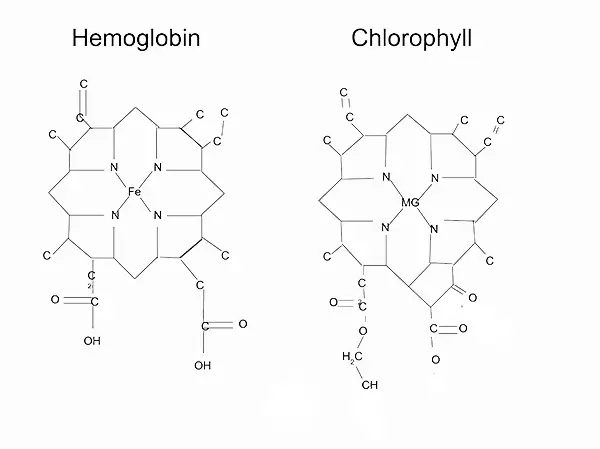
Chlorella enthält auch Chlorophyll und ist eine der reichsten Chlorophyllquellen der Welt. Der hohe Chlorophyllgehalt der Chlorella verleiht ihr ihre leuchtend grüne Farbe.
Sowohl Chlorella als auch Chlorophyll wird eine entgiftende Wirkung nachgesagt, da sie helfen können, Giftstoffe aus dem Körper zu entfernen. Allerdings tun sie dies auf unterschiedliche Weise.
Chlorella entgiftet den Körper, indem es Giftstoffe bindet und sie aus dem Körper transportiert.
Chlorophyll entgiftet Ihren Körper, indem es Ihr Blut reinigt und die Sauerstoffversorgung verbessert.
Da Chlorophyll eine ähnliche Struktur wie Hämoglobin hat, kann es die Produktion roter Blutkörperchen erhöhen und deren Funktion verbessern. Dies kann die Durchblutung und Sauerstoffversorgung des Gewebes verbessern. Chlorophyll kann auch freie Radikale neutralisieren, d. h. instabile Moleküle, die oxidativen Stress und Entzündungen verursachen können.
Was ist also stärker für die Entgiftung: Chlorella oder Chlorophyll? Nun, das hängt davon ab, welche Art von Giftstoffen Sie loswerden wollen. Wenn Sie Schwermetallen oder anderen Umweltschadstoffen ausgesetzt sind, kann Chlorella für Sie effektiver sein. Wenn Sie die Qualität Ihres Blutes und die Sauerstoffversorgung verbessern wollen, ist Chlorophyll möglicherweise vorteilhafter für Sie. Wenn Sie Körpergeruch oder Mundgeruch reduzieren wollen, sind Chlorophyll-Nahrungsergänzungsmittel die beste Wahl, und topisches Chlorophyllin-Gel hat sich bei der Behandlung von Akne, großen Poren oder Sonnenbrand als vielversprechend erwiesen.
Sie müssen sich jedoch nicht zwischen beiden entscheiden. Sie können sowohl Chlorella als auch Chlorophyll aus derselben Quelle beziehen: Chlorella-Ergänzungsmittel. Chlorella-Nahrungsergänzungsmittel enthalten sowohl die ganzen Algenzellen als auch das extrahierte Chlorophyll. Auf diese Weise können Sie das Beste aus beiden Welten genießen und eine umfassende Entgiftung für Ihren Körper erhalten.
Zusammenfassung:
Chlorella und Chlorophyll bieten unterschiedliche Entgiftungswege: Chlorella bindet und entfernt Giftstoffe, während Chlorophyll das Blut reinigt und die Sauerstoffversorgung steigert. Chlorella-Nahrungsergänzungsmittel, die beides enthalten, bieten eine umfassende Entgiftung und gehen auf unterschiedliche Bedürfnisse ein.
Goldene Chlorella.
Die Goldene Chlorella gehört zur Familie der Mikroalgen, Chlorella vulgaris.
Es handelt sich um eine Art von Chlorella-Algen, die fermentiert und getrocknet wurde, wodurch sie eine natürliche goldene Farbe und einen neutralen Geschmack erhält. Im Gegensatz zur grünen Sorte, die einen hohen Chlorophyllgehalt aufweist, hat die goldene Chlorella keine Chlorophyll-Eigenschaften. Dies macht sie schmackhafter und vielseitiger, da sie keinen bitteren Geschmack oder Geruch hat.
Im Gegensatz zu grüner Chlorella, die einen starken Algengeschmack und -geruch sowie einen hohen Chlorophyllgehalt hat, ist goldene Chlorella schmackhafter und vielseitiger und lässt sich daher leichter in verschiedene Gerichte und Getränke integrieren. Da goldenes Chlorella weder die Farbe noch den Geschmack von Algen hat, kann es zum Kochen verwendet und zu allen Gerichten hinzugefügt werden, ob süß oder salzig, heiß oder kalt, einschließlich Saucen, Suppen und Smoothies.
Das bedeutet jedoch nicht, dass die goldene Chlorella keinerlei gesundheitlichen Nutzen hat. Goldene Chlorella ist auch ein Superfood. Sie kann verschiedene gesundheitliche Vorteile bieten wie normale Chlorella ohne Chlorophyll.
Sie wird von einem Schweizer Unternehmen namens Alver World SA hergestellt, das auch eine andere Art von Chlorella, die Diamant-Chlorella, produziert, die eine weiße Farbe und einen höheren Proteingehalt hat. Ein anderes niederländisches Unternehmen namens Duplaco hat ebenfalls eine neue goldene Chlorella mit einem geringen Pigmentgehalt gezüchtet.
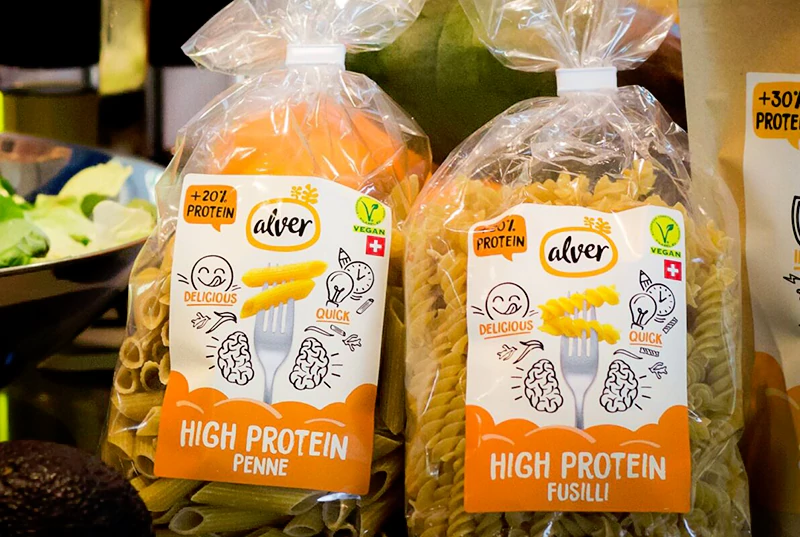
Zusammenfassung:
Goldenes Chlorella, ein geschmacksneutrales und vielseitiges Algen-Superfood, glänzt durch seine einfache Verwendung in Gerichten und Getränken und bietet dennoch ähnliche gesundheitliche Vorteile wie normales Chlorella, jedoch ohne Chlorophyll.
Mögliche Risiken von Chlorella.
Chlorella wurde von der FDA als "allgemein als sicher anerkannt" eingestuft.
Zu den häufigsten Nebenwirkungen zählen Durchfall, Übelkeit, Blähungen, grüner Stuhl und Magenkrämpfe. Allerdings kann es für manche Menschen auch einige potenzielle Risiken oder Nebenwirkungen haben, wie zum Beispiel:
- Allergische Reaktionen.
- Verunreinigungen. Chlorella-Nahrungsergänzungsmittel können mit Schwermetallen, Bakterien, Pilzen oder anderen schädlichen Substanzen kontaminiert sein, die die Qualität und Sicherheit des Produkts beeinträchtigen können. Verunreinigungen können aufgrund schlechter Herstellungspraktiken, Umweltverschmutzung oder unsachgemäßer Lagerung auftreten.
- Wechselwirkungen mit Medikamenten. Da Chlorella das Immunsystem stimulieren kann, kann sie die Wirksamkeit von immunsuppressiven Medikamenten verringern. Aufgrund des hohen Gehalts an Vitamin K, einem Nährstoff, der eine gesunde Blutgerinnung fördert, kann es auch zu Wechselwirkungen mit Blutverdünnern kommen.
Wie man Chlorella Verwendet.
Es gibt keine offiziellen Richtlinien für die angemessene Verwendung oder Menge von Chlorella. Einige gängige Tagesdosen reichen von 3 bis 10 Gramm.
Das Pulver kann mit Wasser, Saft, Joghurt, Smoothies, Suppen, Salaten oder jedem anderen Lebensmittel oder Getränk gemischt werden. Das Kochen von Chlorella kann den Nährwert mindern. Ich konnte keine Studien über die Auswirkungen der thermischen Verarbeitung auf das Nährwertprofil von Chlorella finden. Einige Vitamine wie Vitamin C und ein großer Teil der sekundären Pflanzenstoffe sind hitzeempfindlich. Manche Menschen mögen jedoch weder den Geschmack noch den Geruch von Chlorella, der an Seetang oder Gras erinnert. Um ihren Geschmack oder Geruch zu überdecken, kann sie Vinaigrette-Dressings, Miso-Suppen, Weizengras oder anderen Gerichten zugesetzt werden.
Alternativ kann es auch als Nahrungsergänzungsmittel in verschiedenen Formen eingenommen werden, z. B. als Pulver, Kapsel, Tablette oder Extrakt.
Spirulina vs. Chlorella.
| Nährstoff | Spirulina | Täglicher Wert | Chlorella | Täglicher Wert |
| Kalorien | 290 | 15.50% | 411 | 21% |
| Eiweiß | 57.5 g | 115% | 58 g | 116% |
| Fett | 7.72 g | 15% | 13 g | 20% |
| Kohlenhydrate | 23.9 g | 6% | 23 g | 8% |
| Faser | 3,6 g | 0% | 3,5 g | 0% |
| Zucker | 3.1 g | 0% | 2,5 g | 0% |
| Kalium | 1360 mg | 29% | 950 mg | 20% |
| Kalzium | 120 mg | 12% | 221 mg | 17% |
| Kupfer | 6.1 mg | 0.67% | 0,1 mg | 0% |
| Eisen | 28.5 mg | 219% | 130 mg | 722% |
| Magnesium | 165 mg | 55% | 315 mg | 75% |
| Zink | 2 mg | 21% | 71 mg | 646% |
| Vitamin A | 570 IU | 120% | 51,300 IU | 900%-1000% |
| Vitamin B1 (Thiamin) | 2.38 mg | 207% | 1,7 mg | 142% |
| Vitamin B2 (Riboflavin) | 3.67 mg | 306% | 4.3 mg | 331% |
| Vitamin B3 (Niacin) | 12.8 mg | 85% | 23.8 mg | 149% |
| Vitamin B6 | 0.364 mg | 28% | 0,9 mg | 70% |
| Folat (B9) | 94 mcg | 24% | 90 mcg | 24% |
| Vitamin B12 | pseudo | 0% | 0.13 mg | * |
| Vitamin C | 10 mg | 12% | 10 mg | 11% |
| Vitamin E | 5 mg | 33% | 1,5 mg | 10% |
| Vitamin K | 25 mcg | 24% | 263 mcg | 219% |
Quelle US-Landwirtschaftsministerium
Chlorella ist reich an:
- Zink
- Provitamin A
- Vitamin K
- Magnesium
- Eisen
- B12
Spirulina ist kalorienärmer, was vielleicht nicht so wichtig ist, weil wir beide als Nahrungsergänzungsmittel in Gramm Pulver pro Tag verwenden, aber wichtig ist, dass es einen höheren ORAC-Wert hat, weil es sich um eine Blaualge handelt, die eines der stärksten antioxidativen Pigmente von allen hat, abgesehen von Astaxanthin, das ebenfalls aus mikroskopischen Algen stammt.
Chlorella und Spirulina Zusammen.
Spirulina und Chlorella können ohne Nebenwirkungen zusammen eingenommen werden. In den letzten Jahren haben wir eine zunehmende Anzahl von Nahrungsergänzungsmitteln gesehen, die beides in einer Tablette enthalten, normalerweise im Verhältnis 50:50.
Hier gibt es zwei Möglichkeiten, die wir in Betracht ziehen könnten. Die eine ist, die Dosierung des einen zu senken und dann das andere hinzuzufügen. Die zweite Möglichkeit besteht darin, nur das andere hinzuzufügen, wobei beide die volle Dosierung haben. In beiden Fällen könnte es meiner Meinung nach einige zusätzliche Vorteile geben, je nachdem, was wir erreichen wollen.
Im besten Fall nehmen wir beide in voller Dosierung ein, wenn wir keine Allergien oder andere Nebenwirkungen haben. Denken Sie daran, dass diese dass Nahrungsergänzungsmittel nicht billig sind und dass wir zum Beispiel bessere Quellen für Antioxidantien haben könnten wie Astaxanthin oder Kurkuma, oder wir könnten andere Quellen für nährstoffreiche Lebensmittel wie Kräuter und Gewürze, Microgreens oder Kakao haben. Im besten Fall ist es jedoch, sie alle zu verwenden, sowohl Spirulina als auch Chlorella, Astaxanthin, Kurkuma, Mikrogrün, Kräuter und Gewürze, ätherische Öle und andere Nahrungsergänzungsmittel, wenn Sie über genügend Ressourcen verfügen, um in Ihre Gesundheit zu investieren. Der Umgang mit Gesundheitsrechnungen und chronischen Krankheiten ist viel teurer als jede dieser Nahrungsergänzungsmittel.
Chlorella und BMAA.
BMAA ist ein Neurotoxin das von einigen Arten von Cyanobakterien produziert wird und mit neurodegenerativen Erkrankungen wie Alzheimer, Parkinson und ALS in Verbindung gebracht wird. Chlorella ist eine einzellige Grünalge, die einer anderen Abteilung als Cyanobakterien angehört und kein BMAA produziert. Es ist jedoch wichtig sicherzustellen, dass Ihr Nahrungsergänzungsmittel rein, biologisch und ordnungsgemäß getrocknet und verarbeitet ist, um jegliche Kontamination oder Toxinentwicklung zu vermeiden. Chlorella kann dabei helfen, den Körper von BMAA und anderen Giftstoffen zu entgiften, indem es sich an diese bindet und deren Ausscheidung erleichtert.
Häufig Gestellte Fragen
Verweise:
- Queiroz, M. L., Rodrigues, A. P., Bincoletto, C., Figueirêdo, C. A., & Malacrida, S. (2003). Protective effects of Chlorella vulgaris in Blei-exponierten Mäusen infiziert mit Listeria monocytogenes. International immunopharmacology, 3(6), 889-900. https://doi.org/10.1016/S1567-5769(03)00082-1
- Volgusheva, A. A., Todorenko, D. A., Baizhumanov, A. A., Chivkunova, O. B., Solovchenko, A., & Antal, T. K. (2022). Cadmium - und Chrom-induzierten Schäden und acclimation mechanisms in Scenedesmus quadricauda und Chlorella sorokiniana. Zeitschrift für Angewandte Phykologie, 34(3), 1435-1446. https://doi.org/10.1007/s10811-022-02747-6
- Carfagna, S., Lanza, N., Salbitani, G., Basile, A., Sorbo, S., & Vona, V. (2013). Physiologischen und morphologischen Reaktionen von Blei oder Cadmium ausgesetzt Chlorella sorokiniana 211-8K (Chlorophyceae). SpringerPlus, 2(1), 1-7. https://doi.org/10.1186/2193-1801-2-147
- Cheng, J., Yin, W., Chang, Z., Lundholm, N., & Jiang, Z. (2016). Biosorption Kapazität und Kinetik von cadmium(II) auf Leben und tot Chlorella vulgaris. Zeitschrift für Angewandte Phykologie, 29(1), 211-221. https://doi.org/10.1007/s10811-016-0916-2
- Otsuki, T., Shimizu, K., Iemitsu, M., & Kono, I. (2011). Speicheldrüsen sekretorischen immunglobulin-A-Sekretion erhöht, nach 4 Wochen Einnahme von chlorella-derived Mehrkomponenten-Nahrungsergänzungsmittel, das in Menschen: eine randomisierte cross-over-Studie. Ernährungstagebuch, 10, 91. https://doi.org/10.1186/1475-2891-10-91
- Kwak, J. H., Baek, S. H., Woo, Y., Han, J. K., Kim, B. G., Kim, O. Y., & Lee, J. H. (2012). Vorteilhaft immunstimulierenden Wirkung der short-term Chlorella supplementation: enhancement of natural killer cell activity and early inflammatory response (randomized, double-blinded, placebo-controlled trial). Ernährungstagebuch, 11, 53. https://doi.org/10.1186/1475-2891-11-53
- Nakashima, Y., Ohsawa, I., Konishi, F., Hasegawa, T., Kumamoto, S., Suzuki, Y., & Ohta, S. (2009). Die vorbeugende Wirkung von Chlorella auf den kognitiven Rückgang im Alter-abhängig Demenz-Modell Mäuse. Neuroscience Letters, 464(3), 193-198. https://doi.org/10.1016/j.neulet.2009.08.044
- Morgese, M. G., Mhillaj, E., Francavilla, M., Bove, M., Morgano, L., Tucci, P., Trabace, L., & Schiavone, S. (2016). Chlorella sorokiniana-Extrakt Verbessert die Short-Term Memory in Rats. Moleküle (Basel, Schweiz), 21(10), 1311. https://doi.org/10.3390/molecules21101311
- Nakano, S., Takekoshi, H., & Nakano, M. (2007). Chlorella (Chlorella pyrenoidosa) supplementation decreases dioxin und erhöht immunglobulin-a-Konzentrationen in der Muttermilch. Journal of medicinal food, 10(1), 134-142. https://doi.org/10.1089/jmf.2006.023
- Nakano, S., Takekoshi, H., & Nakano, M. (2009). Chlorella pyrenoidosa-Supplementierung Reduziert das Risiko von Anämie, Proteinurie und Ödemen bei Schwangeren Frauen. Pflanzliche Lebensmittel für die Menschliche Ernährung, 65(1), 25-30. https://doi.org/10.1007/s11130-009-0145-9
- Hirooka, T., Nagase, H., Uchida, K., Hiroshige, Y. Ehara, Y., Nishikawa, J., Nishihara, T., Miyamoto, K., & Hirata, Z. (2005). ABBAU VON BISPHENOL A UND VERSCHWINDEN SEINE ÖSTROGENE AKTIVITÄT VON DER GRÜNALGE CHLORELLA FUSCA VAR. VACUOLATA. Environmental Toxicology and Chemistry, 24(8), 1896. https://doi.org/10.1897/04-259r.1
- Ryu, N. H., Lim, Y., Park, J. E., Kim, J., Kim, J. Y., Kwon, S. W., & Kwon, O. (2014). Auswirkungen des täglichen Chlorella Verbrauch auf serum-lipid-und Carotinoid-profile in milder Hypercholesterinämie Erwachsene: eine randomisierte, doppelblinde, placebo-kontrollierte Studie. Ernährungstagebuch, 13, 57. https://doi.org/10.1186/1475-2891-13-57
- Otsuki, T., Shimizu, K., Iemitsu, M., & Kono, I. (2013). Mehrkomponenten-supplement containing Chlorella decreases arterial stiffness in healthy young men. Zeitschrift für klinische Biochemie und Ernährung, 53(3), 166-169. https://doi.org/10.3164/jcbn.13-51
- Otsuki, T., Shimizu, K., & Maeda, S. (2015). Veränderungen in der arteriellen Steifigkeit und die Produktion von Stickstoffmonoxid mit Chlorella-derived Mehrkomponenten-Supplementierung im mittleren Alter und ältere Menschen. Zeitschrift für klinische Biochemie und Ernährung, 57(3), 228-232. https://doi.org/10.3164/jcbn.15-86
- Jiang, Q., Chen, F., Zhang, T., Liu, M. Z., Duan, S., & Sun, X. (2021). Die antihypertensive Wirkung und die möglichen molekularen Mechanismus der microalgal angiotensin-I-Converting-Enzym-Inhibitor-Like Peptide: A mini-review. Internationale Zeitschrift für Molekularwissenschaften, 22(8), 4068. https://doi.org/10.3390/ijms22084068
- Fallah, AA, Sarmast, E., Habibian Dehkordi, S., Engardeh, J., Mahmoodnia, L., Khaledifar, A. & Jafari, T. (2018). Wirkung der Chlorella-Supplementierung auf kardiovaskuläre Risikofaktoren: Eine Metaanalyse randomisierter kontrollierter Studien. Klinische Ernährung, 37(6), 1892-1901. https://doi.org/10.1016/j.clnu.2017.09.019
- Umemoto, S., & Otsuki, T. (2014). Chlorella-derived Mehrkomponenten-Supplementierung erhöht die aerobe Ausdauer bei Jungen Individuen. Zeitschrift für klinische Biochemie und Ernährung, 55(2), 143-146. https://doi.org/10.3164/jcbn.14-58
- Mizoguchi, T., Takehara, I., Masuzawa, T., Saito, T., & Naoki Sato, Y. (2008). Nutrigenomische Studien der Auswirkungen von Chlorella auf Probanden mit einem hohen Risiko-Faktoren für lifestyle-Verwandte Krankheiten. Zeitschrift für medizinische Lebensmittel, 11(3), 395-404. https://doi.org/10.1089/jmf.2006.0180
- Lee, H. S., Park, H. J., & Kim, M. K. (2008). Effect of Chlorella vulgaris on lipid Stoffwechsel in Wistar Ratten fed high-fat-Diät. Ernährung Forschung und Praxis, 2(4), 204-210. https://doi.org/10.4162/nrp.2008.2.4.204
- Chon, J. W., Sung, J. H., Hwang, E. J., & Park, Y. K. (2009). Chlorella methanol-Extrakt reduziert lipid-Akkumulation in und erhöht die Anzahl der apoptotischen 3T3-L1-Zellen. Annalen der New York Academy of Sciences, 1171, 183-189. https://doi.org/10.1111/j.1749-6632.2009.04895.x
- Panahi, Y., Tavana, S., Sahebkar, A., Masoudi, H., & Madanchi, N. (2012). Auswirkungen Adjuvanter Therapie mit Chlorellav ulgaris-Extrakt auf den Antioxidativen Status, Lungenfunktion und Klinische Symptome von Patienten mit Obstruktiven Lungenerkrankungen. Scientia pharmaceutica, 80(3), 719-730. https://doi.org/10.3797/scipharm.1202-06
- Lee, S. H., Kang, H. J., Lee, H. J., Kang, M. H., & Park, Y. K. (2010). Sechs-wöchige Supplementierung mit Chlorella hat positiven Einfluss auf den antioxidativen status in der koreanischen männlichen Raucher. Ernährung (Burbank, Los Angeles County, Kalifornien), 26(2), 175-183, language: German. https://doi.org/10.1016/j.nut.2009.03.010
- Nakano, S., Takekoshi, H., & Nakano, M. (2009). Chlorella pyrenoidosa-Supplementierung Reduziert das Risiko von Anämie, Proteinurie und Ödemen bei Schwangeren Frauen. Pflanzliche Lebensmittel für die Menschliche Ernährung, 65(1), 25-30. https://doi.org/10.1007/s11130-009-0145-9
- Salvia, S., Warly, L., Zudri, F., Novia, R., & Fadri, R. A. (2021). Chlorella vulgaris-Supplementierung als Mineral-Quelle von Zink und Selen zur Verbesserung der Qualität von Ziegenmilch als Gesundheits-Drink bei COVID-19 Pandemy. IOP Conference Series, 757(1), 012051. https://doi.org/10.1088/1755-1315/757/1/012051
Zusammenhängende Posts
Haben Sie Fragen zum Thema Ernährung und Gesundheit?
Ich würde gerne von Ihnen hören und sie in meinem nächsten Beitrag beantworten. Ich freue mich über Ihren Beitrag und Ihre Meinung und freue mich darauf, bald von Ihnen zu hören. Ich lade Sie auch dazu ein Folgen Sie uns auf Facebook, Instagram und Pinterest für weitere Inhalte zu Ernährung und Gesundheit. Sie können dort einen Kommentar hinterlassen und sich mit anderen Gesundheitsbegeisterten austauschen, Ihre Tipps und Erfahrungen teilen und Unterstützung und Ermutigung von unserem Team und unserer Community erhalten.
Ich hoffe, dass dieser Beitrag für Sie informativ und unterhaltsam war und dass Sie bereit sind, die gewonnenen Erkenntnisse anzuwenden. Wenn Sie diesen Beitrag hilfreich fanden, dann es teilen mit Ihren Freunden und Familienangehörigen, die ebenfalls davon profitieren könnten. Man weiß nie, wer auf seinem Weg zur Gesundheit vielleicht etwas Anleitung und Unterstützung braucht.
– Das könnte Ihnen auch gefallen –

Über Ernährung Lernen
Milos Pokimica ist Doktor der Naturheilkunde, klinischer Ernährungsberater, Autor für medizinische Gesundheit und Ernährung sowie Berater für Ernährungswissenschaften. Autor der Buchreihe Zum Veganer werden? Rückblick auf die Wissenschafter betreibt auch das Natürliche Gesundheit website GoVeganWay.com
Medizinischer Haftungsausschluss
GoVeganWay.com bietet Ihnen Rezensionen der neuesten Ernährungs- und Gesundheitsforschung. Die bereitgestellten Informationen stellen die persönliche Meinung des Autors dar und sind weder als Ersatz für professionelle medizinische Beratung, Diagnose oder Behandlung gedacht noch impliziert. Die bereitgestellten Informationen dienen ausschließlich Informationszwecken und sollen nicht als Ersatz für die Beratung, Diagnose und/oder medizinische Behandlung durch einen qualifizierten Arzt oder Gesundheitsdienstleister dienen.Ignorieren Sie niemals professionellen medizinischen Rat oder verzögern Sie die Suche nach medizinischer Behandlung, weil Sie etwas auf GoVeganWay.com gelesen oder über GoVeganWay.com darauf zugegriffen haben
Nehmen Sie NIEMALS Änderungen im Lebensstil oder irgendwelche Änderungen vor, die eine Folge von etwas sind, das Sie auf GoVeganWay.com gelesen haben, bevor Sie einen zugelassenen Arzt konsultieren.
Bei einem medizinischen Notfall rufen Sie sofort einen Arzt oder die Notrufnummer 911 an. GoVeganWay.com empfiehlt oder unterstützt keine bestimmten Gruppen, Organisationen, Tests, Ärzte, Produkte, Verfahren, Meinungen oder andere Informationen, die darin erwähnt werden könnten.
Herausgeber-Tipps –
Milos Pokimica ist Autor für Gesundheit und Ernährung sowie Berater für Ernährungswissenschaften. Er ist Autor einer Buchreihe. Zum Veganer werden? Rückblick auf die Wissenschafter betreibt auch das Natürliche Gesundheit website GoVeganWay.com
Neueste Artikel –
Top-Gesundheitsnachrichten – ScienceDaily
- The overlooked nutrition risk of Ozempic and Wegovyam Februar 4, 2026
Popular weight-loss drugs like Ozempic and Wegovy can dramatically curb appetite, but experts warn many users are flying blind when it comes to nutrition. New research suggests people taking these medications may not be getting enough guidance on protein, vitamins, and overall diet quality, increasing the risk of muscle loss and nutrient deficiencies.
- A 25-year study found an unexpected link between cheese and dementiaam Februar 4, 2026
A massive Swedish study tracking nearly 28,000 people for 25 years found an unexpected link between full-fat dairy and brain health. Among adults without a genetic risk for Alzheimer’s, eating more full-fat cheese was associated with a noticeably lower risk of developing the disease, while higher cream intake was tied to reduced dementia risk overall. The findings challenge decades of low-fat dietary advice but come with important caveats.
- MIT’s new brain tool could finally explain consciousnessam Februar 4, 2026
Scientists still don’t know how the brain turns physical activity into thoughts, feelings, and awareness—but a powerful new tool may help crack the mystery. Researchers at MIT are exploring transcranial focused ultrasound, a noninvasive technology that can precisely stimulate deep regions of the brain that were previously off-limits. In a new “roadmap” paper, they explain how this method could finally let scientists test cause-and-effect in consciousness research, not just observe […]
- Why heart disease risk in type 2 diabetes looks different for men and womenam Februar 4, 2026
Scientists are digging into why heart disease risk in type 2 diabetes differs between men and women—and sex hormones may be part of the story. In a large Johns Hopkins study, men with higher testosterone had lower heart disease risk, while rising estradiol levels were linked to higher risk. These hormone effects were not seen in women. The results point toward more personalized approaches to heart disease prevention in diabetes.
- Sound machines might be making your sleep worseam Februar 4, 2026
Sound machines may not be the sleep saviors many believe. Researchers found that pink noise significantly reduced REM sleep, while simple earplugs did a better job protecting deep, restorative sleep from traffic noise. When pink noise was combined with outside noise, sleep quality dropped even further. The results suggest that popular “sleep sounds” could be doing more harm than good—particularly for kids.
- This unexpected plant discovery could change how drugs are madeam Februar 3, 2026
Plants make chemical weapons to protect themselves, and many of these compounds have become vital to human medicine. Researchers found that one powerful plant chemical is produced using a gene that looks surprisingly bacterial. This suggests plants reuse microbial tools to invent new chemistry. The insight could help scientists discover new drugs and produce them more sustainably.
- A hidden cellular process may drive aging and diseaseam Februar 3, 2026
As we age, our cells don’t just wear down—they reorganize. Researchers found that cells actively remodel a key structure called the endoplasmic reticulum, reducing protein-producing regions while preserving fat-related ones. This process, driven by ER-phagy, is tied to lifespan and healthy aging. Because these changes happen early, they could help trigger later disease—or offer a chance to stop it.
PubMed, #Vegane Diät –
- Diet type and the oral microbiomeam Februar 2, 2026
CONCLUSION: The diet-oral microbiome-systemic inflammation axis is bidirectional and clinically relevant. Understanding both direct ecological regulation and indirect metabolic effects is essential to support precision nutrition strategies aimed at maintaining oral microbial balance and systemic inflammatory risk mitigation.
- Consensus document on healthy lifestylesam Januar 22, 2026
Proteins are a group of macronutrients that are vital to our lives, as they perform various functions, including structural, defensive and catalytic. An intake of 1.0-1.2 g/kg/body weight per day would be sufficient to meet our needs. Carbohydrate requirements constitute 50 % of the total caloric value and should be obtained mainly in the form of complex carbohydrates. In addition, a daily intake of both soluble and insoluble fiber is necessary. Regular consumption of extra virgin olive oil […]
- Vitamin B12 and D status in long-term vegetarians: Impact of diet duration and subtypes in Beijing, Chinaam Januar 21, 2026
CONCLUSIONS: This study reveals a dual challenge among Beijing long-term vegetarians: vitamin B12 deficiency was strongly associated with the degree of exclusion of animal products from the diet (veganism), while vitamin D deficiency was highly prevalent and worsened with longer diet duration. The near-universal vitamin D deficiency observed in this study suggests that, in the Beijing context, the risk may extend beyond dietary choice, potentially reflecting regional environmental factors;…
- Nutritional evaluation of duty meals provided to riot police forces in Germanyam Januar 13, 2026
Background: The primary role of the German riot police is maintaining internal security. Due to challenging working conditions, riot police forces face an elevated risk of various diseases. During duty, forces are provided with meals. A balanced diet can reduce the risk of some of these diseases and contribute to health-promoting working conditions. Aim: First evaluation of the nutritional quality of duty meals in Germany based on German Nutrition Society recommendations (DGE). Methods: In…
- Iodineam Januar 1, 2006
Iodine is an essential trace nutrient for all infants that is a normal component of breastmilk. Infant requirements are estimated to be 15 mcg/kg daily in full-term infants and 30 mcg/kg daily in preterm infants.[1] Breastmilk iodine concentration correlates well with maternal urinary iodine concentration and may be a useful index of iodine sufficiency in infants under 2 years of age, but there is no clear agreement on a value that indicates iodine sufficiency, and may not correlate with […]
Zufällige Beiträge –
Beliebte Beiträge -
Neuestes von PubMed, #pflanzliche Ernährung –
- From paddy soil to dining table: biological biofortification of rice with zincvon Lei Huang am Februar 4, 2026
One-third of paddy soils are globally deficient in zinc (Zn) and 40% of Zn loss in the procession from brown rice to polished rice, which results in the global issue of hidden hunger, e.g., the micronutrient deficiencies in the rice-based population of developing countries. In the recent decades, biofortification of cereal food crops with Zn has emerged as a promising solution. Herein, we comprehensively reviewed the entire process of Zn in paddy soil to human diet, including the regulatory…
- Molecular Characterization of Tobacco Necrosis Virus A Variants Identified in Sugarbeet Rootsvon Alyssa Flobinus am Februar 3, 2026
Sugarbeet provides an important source of sucrose; a stable, environmentally safe, and low-cost staple in the human diet. Viral diseases arising in sugarbeet ultimately impact sugar content, which translates to financial losses for growers. To manage diseases and prevent such losses from occurring, it is essential to characterize viruses responsible for disease. Recently, our laboratory identified a tobacco necrosis virus A variant named Beta vulgaris alphanecrovirus 1 (BvANV-1) in sugarbeet…
- Nutrition in early life interacts with genetic risk to influence preadult behaviour in the Raine Studyvon Lars Meinertz Byg am Februar 3, 2026
CONCLUSIONS: Nutrition in early life and psychiatric genetic risk may interact to determine lasting child behaviour. Contrary to our hypothesis, we find dietary benefits in individuals with lower ADHD PGS, necessitating replication. We also highlight the possibility of including genetics in early nutrition intervention trials for causal inference.
- Effect of the gut microbiota on insect reproduction: mechanisms and biotechnological prospectsvon Dilawar Abbas am Februar 2, 2026
The insect gut microbiota functions as a multifunctional symbiotic system that plays a central role in host reproduction. Through the production of bioactive metabolites, gut microbes interact with host hormonal pathways, immune signaling, and molecular regulatory networks, thereby shaping reproductive physiology and fitness. This review summarizes recent advances in understanding how gut microbiota regulate insect reproduction. Accumulating evidence demonstrates that microbial metabolites…
- Rationale and design of a parallel randomised trial of a plant-based intensive lifestyle intervention for diabetes remission: The REmission of diabetes using a PlAnt-based weight loss InteRvention…von Brighid McKay am Februar 2, 2026
CONCLUSIONS: This trial will provide high-quality clinical evidence on the use of plant-based ILIs to address the epidemics of obesity and diabetes to inform public health policies and programs in Canada and beyond.
- Diet type and the oral microbiomevon Daniel Betancur am Februar 2, 2026
CONCLUSION: The diet-oral microbiome-systemic inflammation axis is bidirectional and clinically relevant. Understanding both direct ecological regulation and indirect metabolic effects is essential to support precision nutrition strategies aimed at maintaining oral microbial balance and systemic inflammatory risk mitigation.



